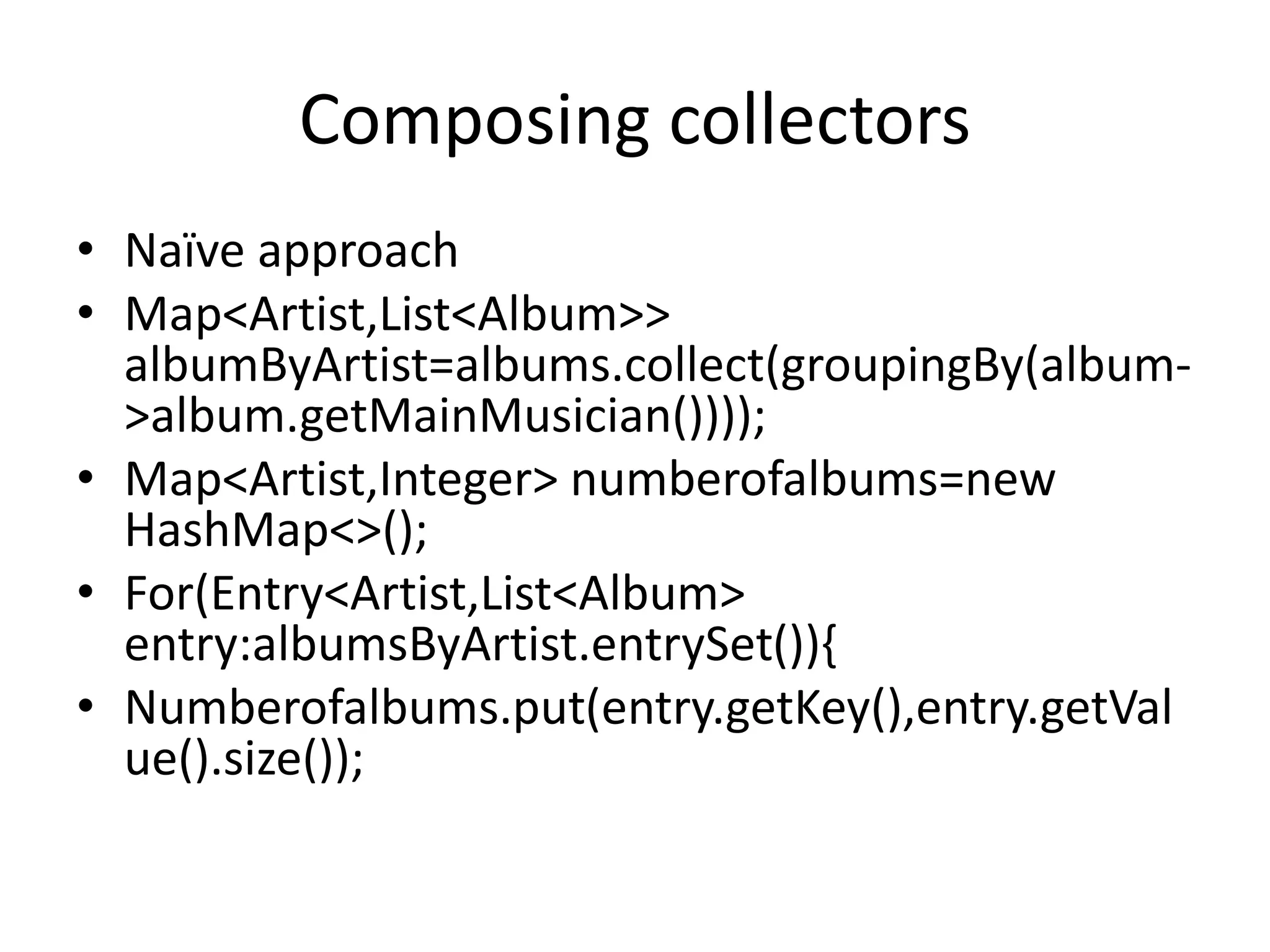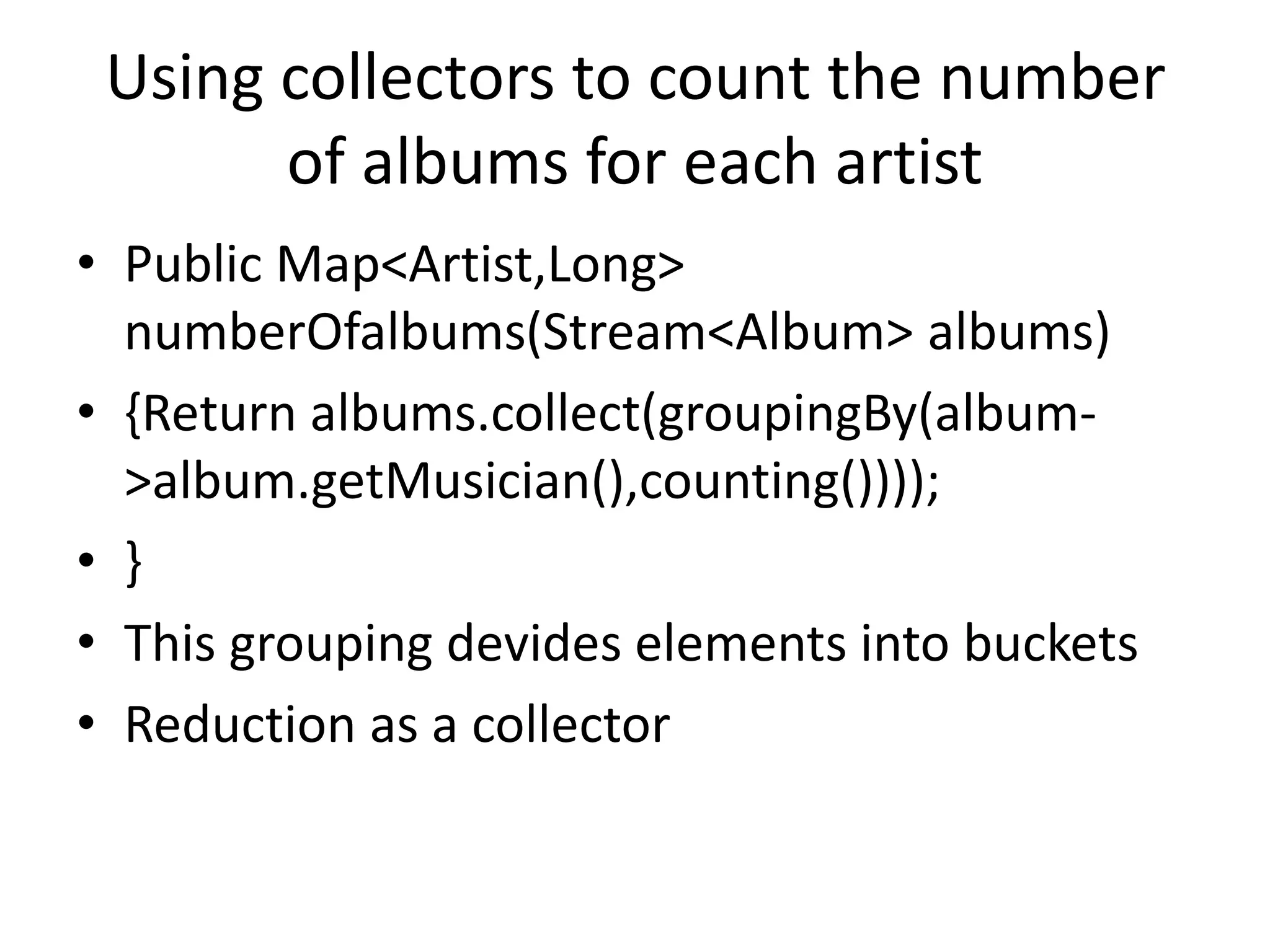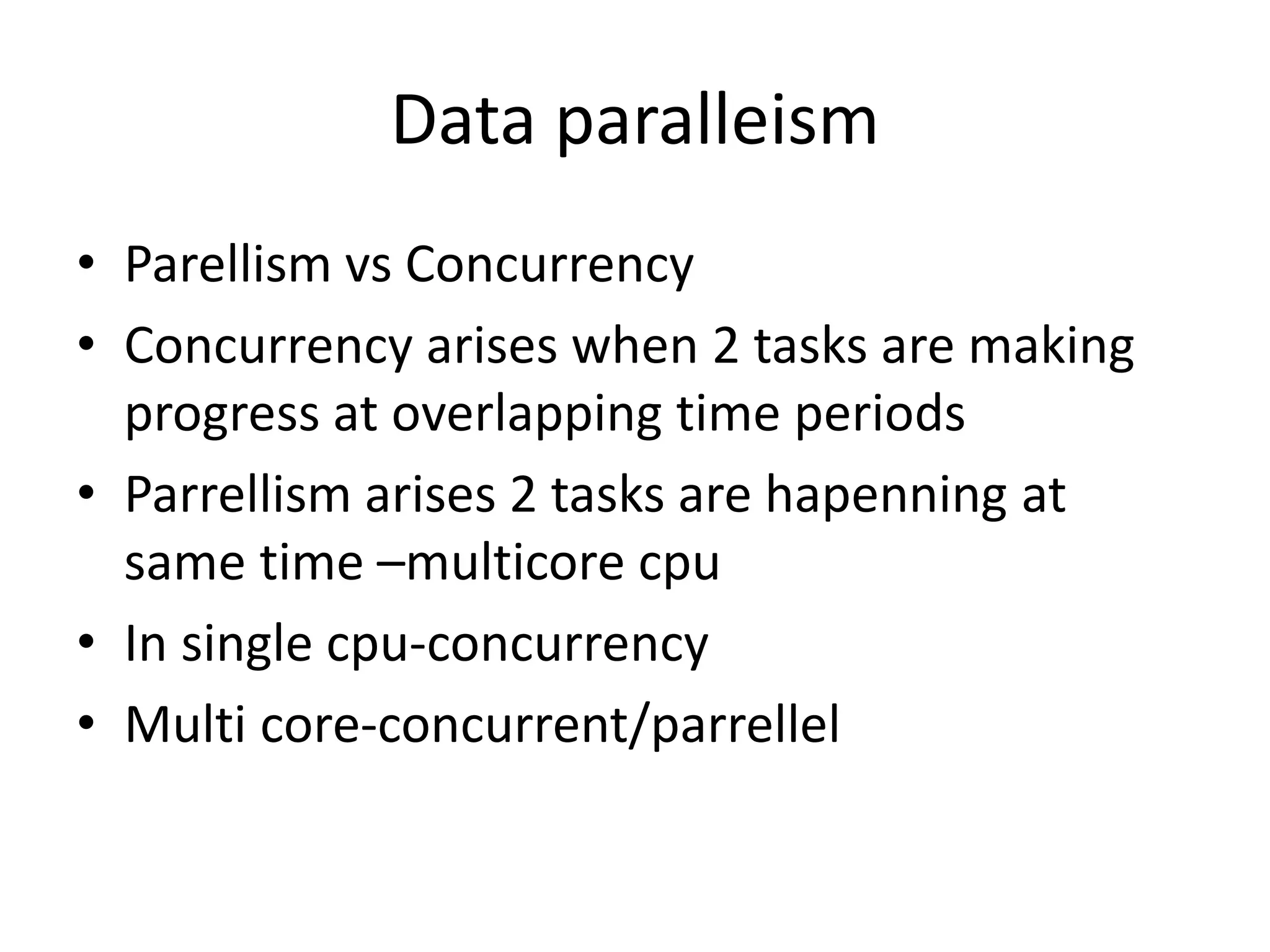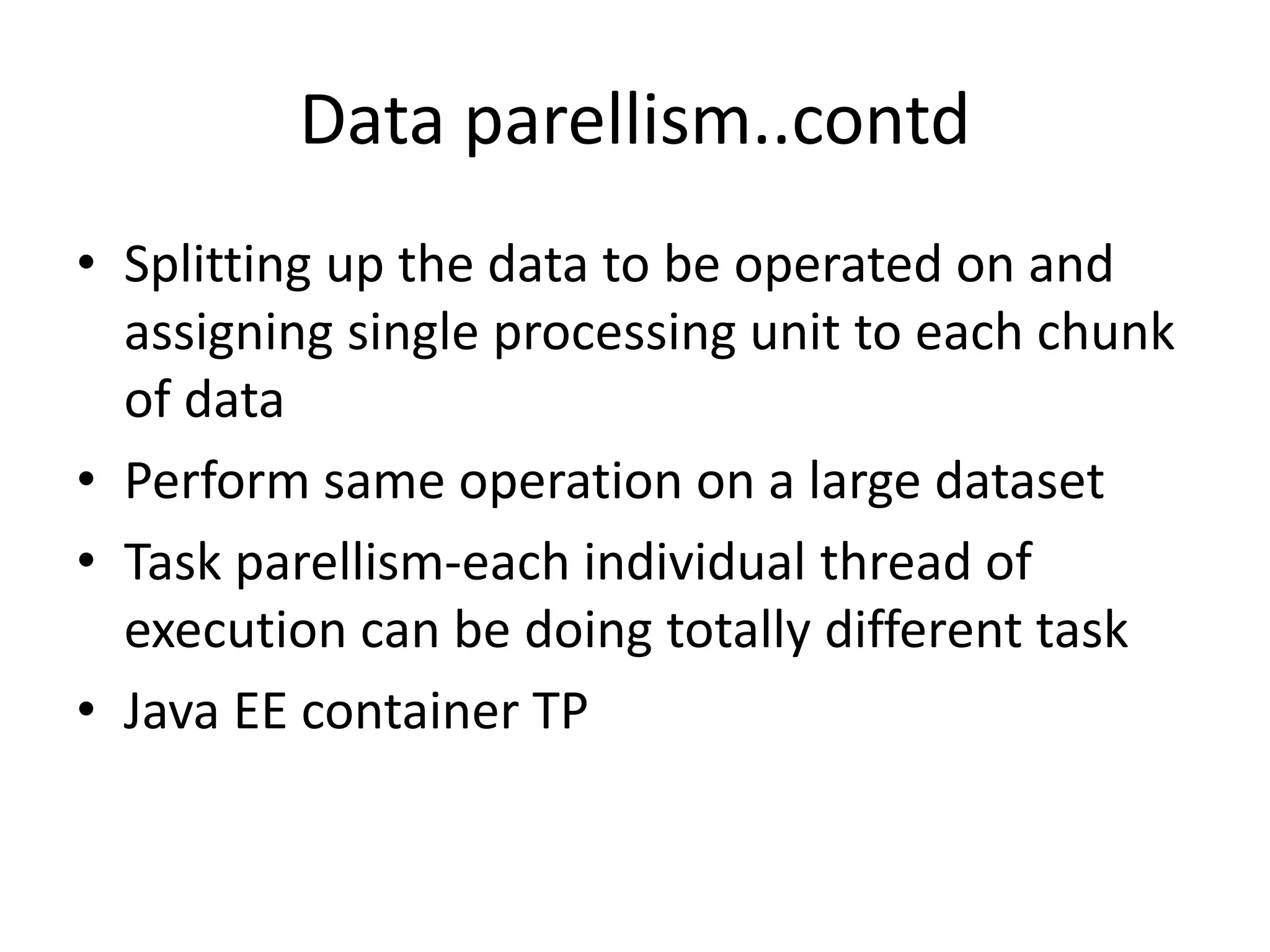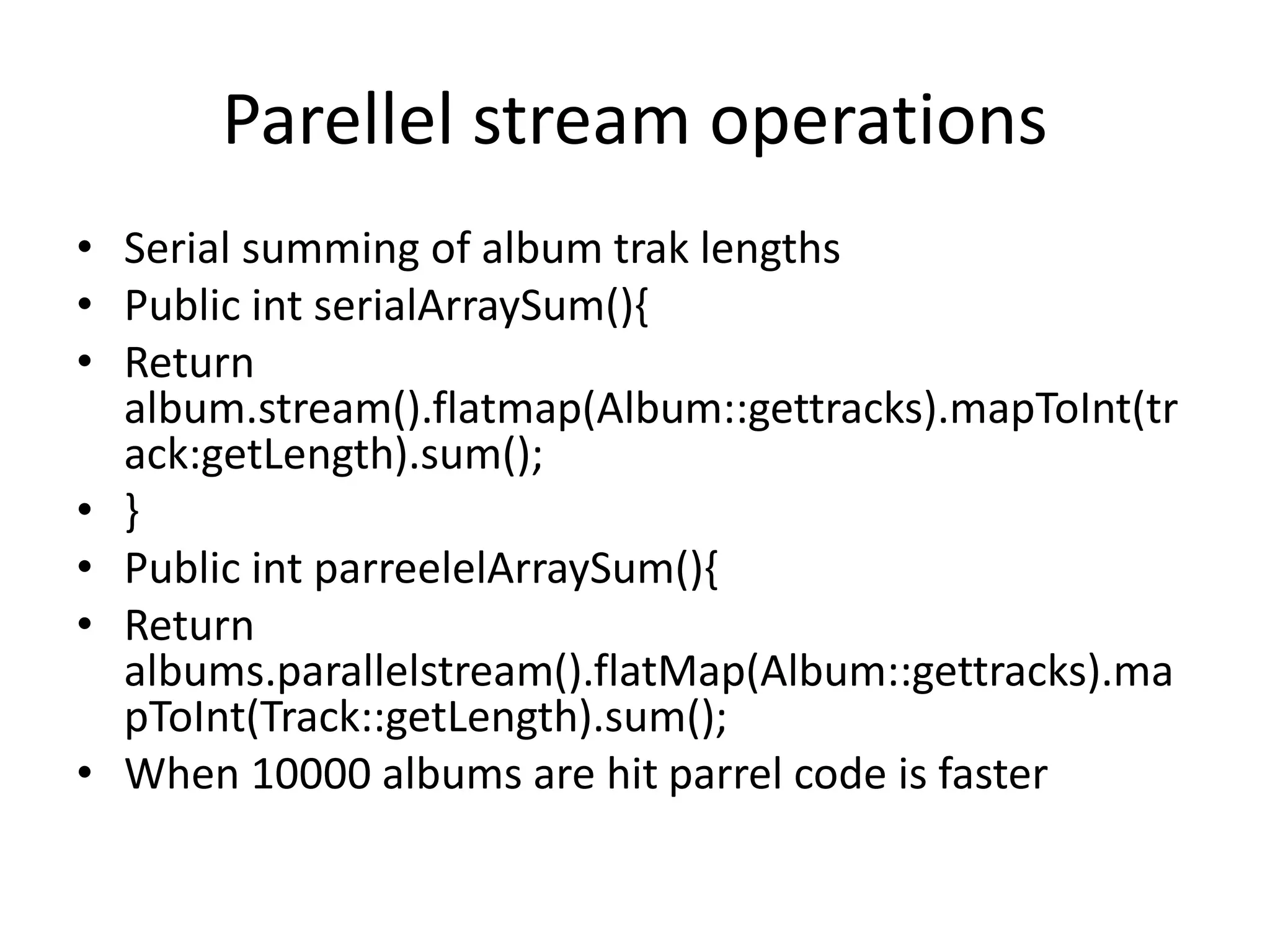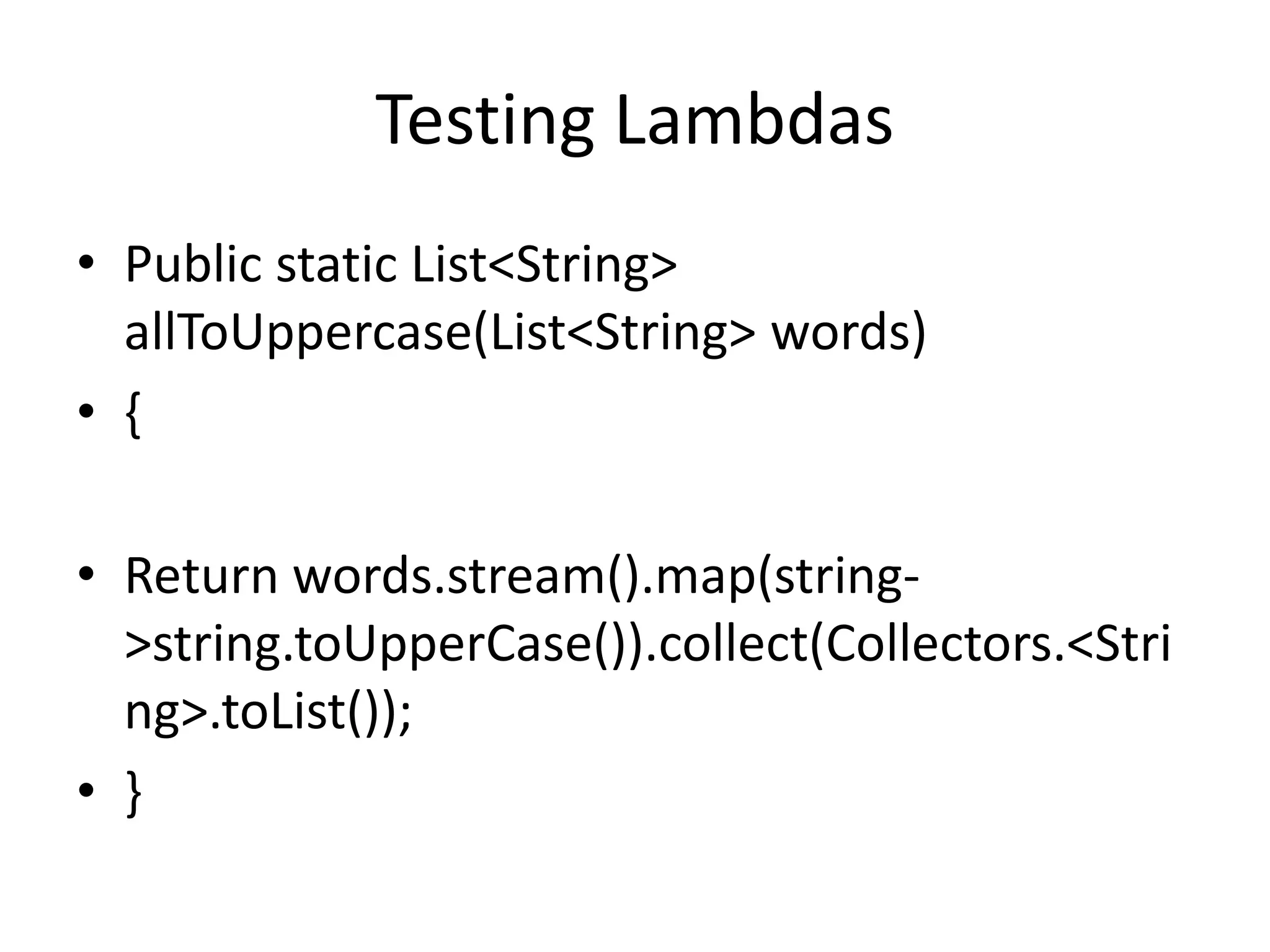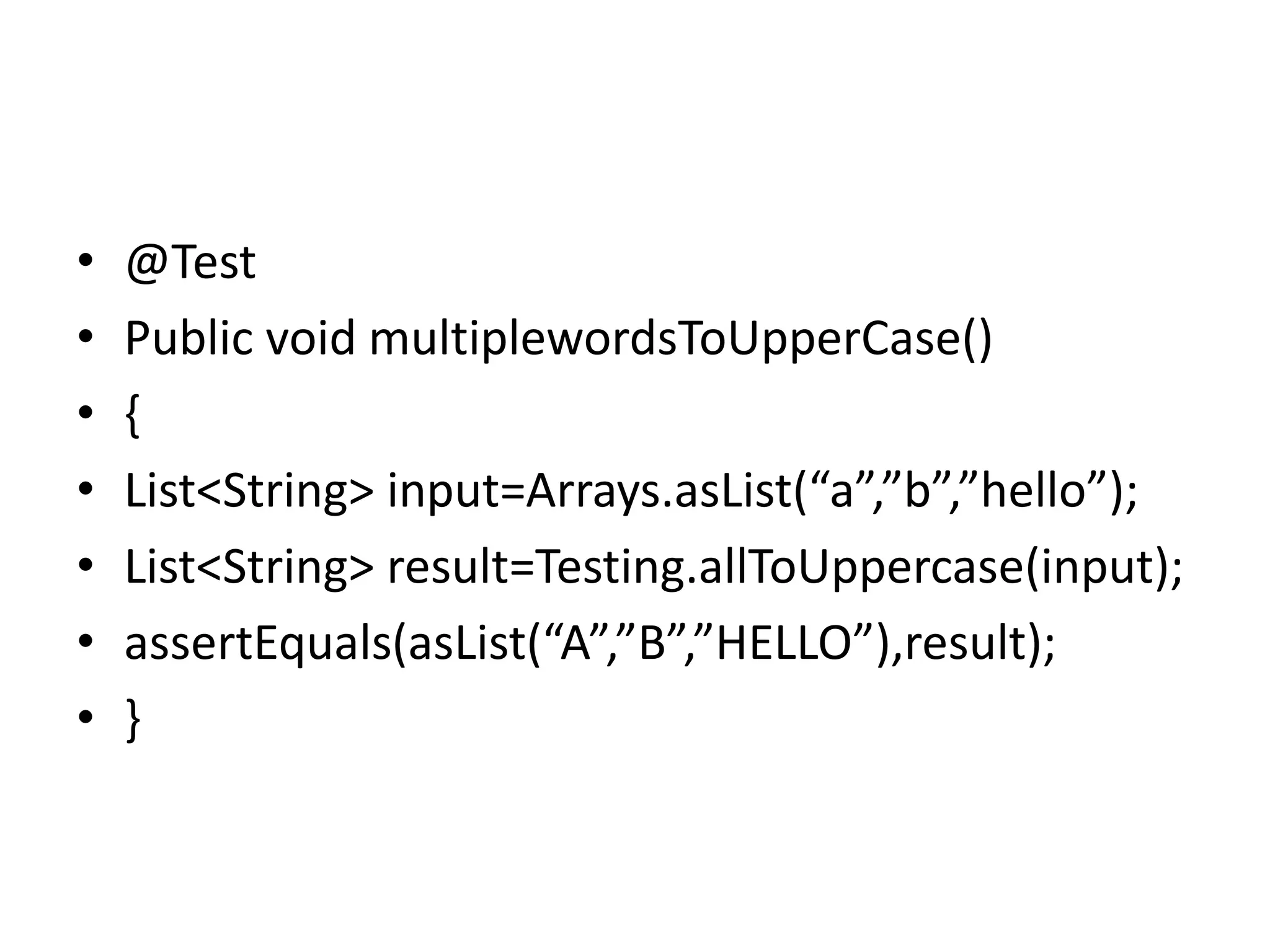This document provides an overview of Java 8 lambdas and functional programming concepts in Java. It discusses key lambda features such as functional interfaces, streams API, and method references. It also covers stream operations like filter, map, reduce, and collect, and how to parallelize stream operations. The document uses examples to illustrate how lambdas can concisely represent logic and simplify traditional iterative approaches to processing collections.
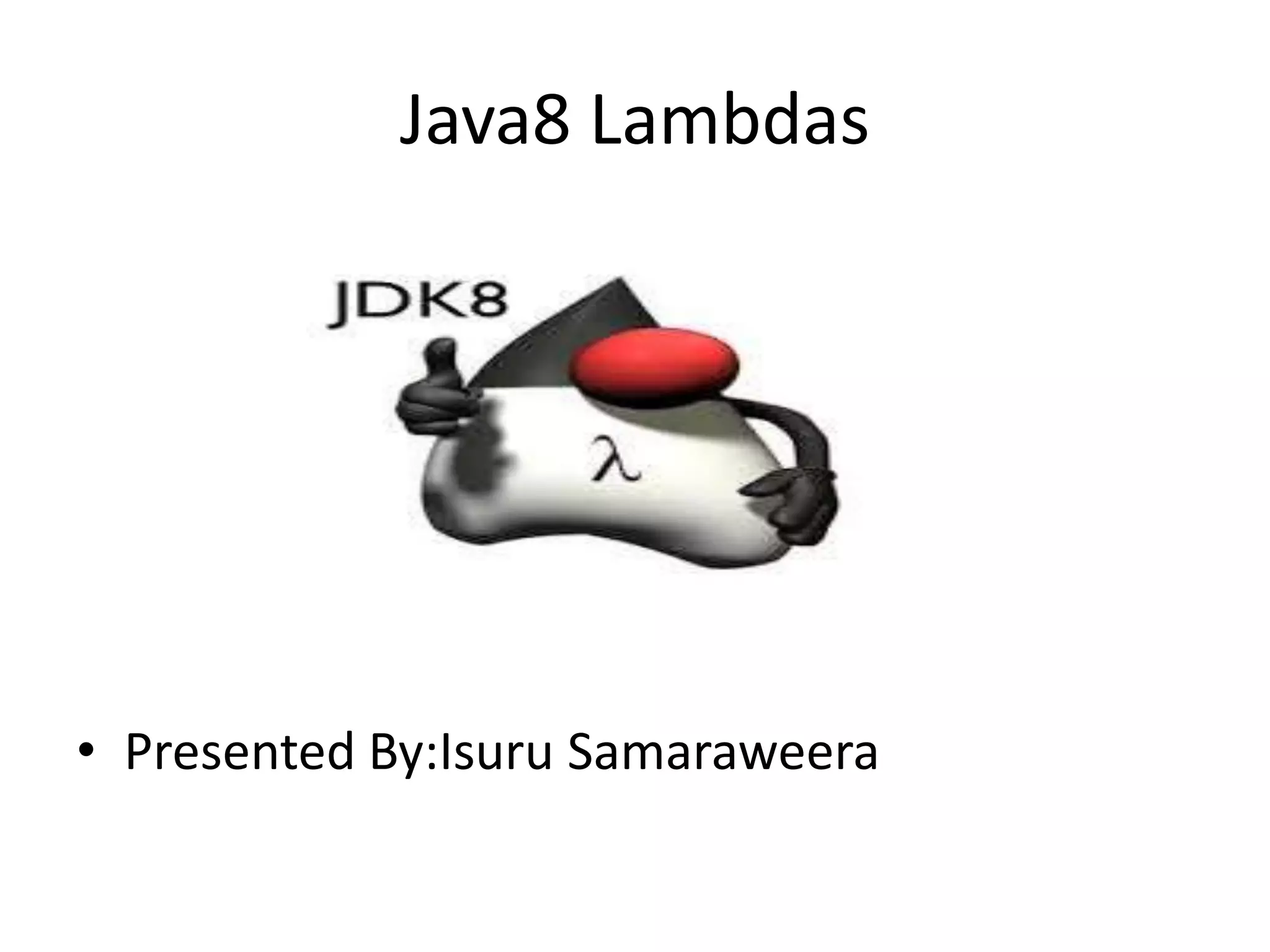
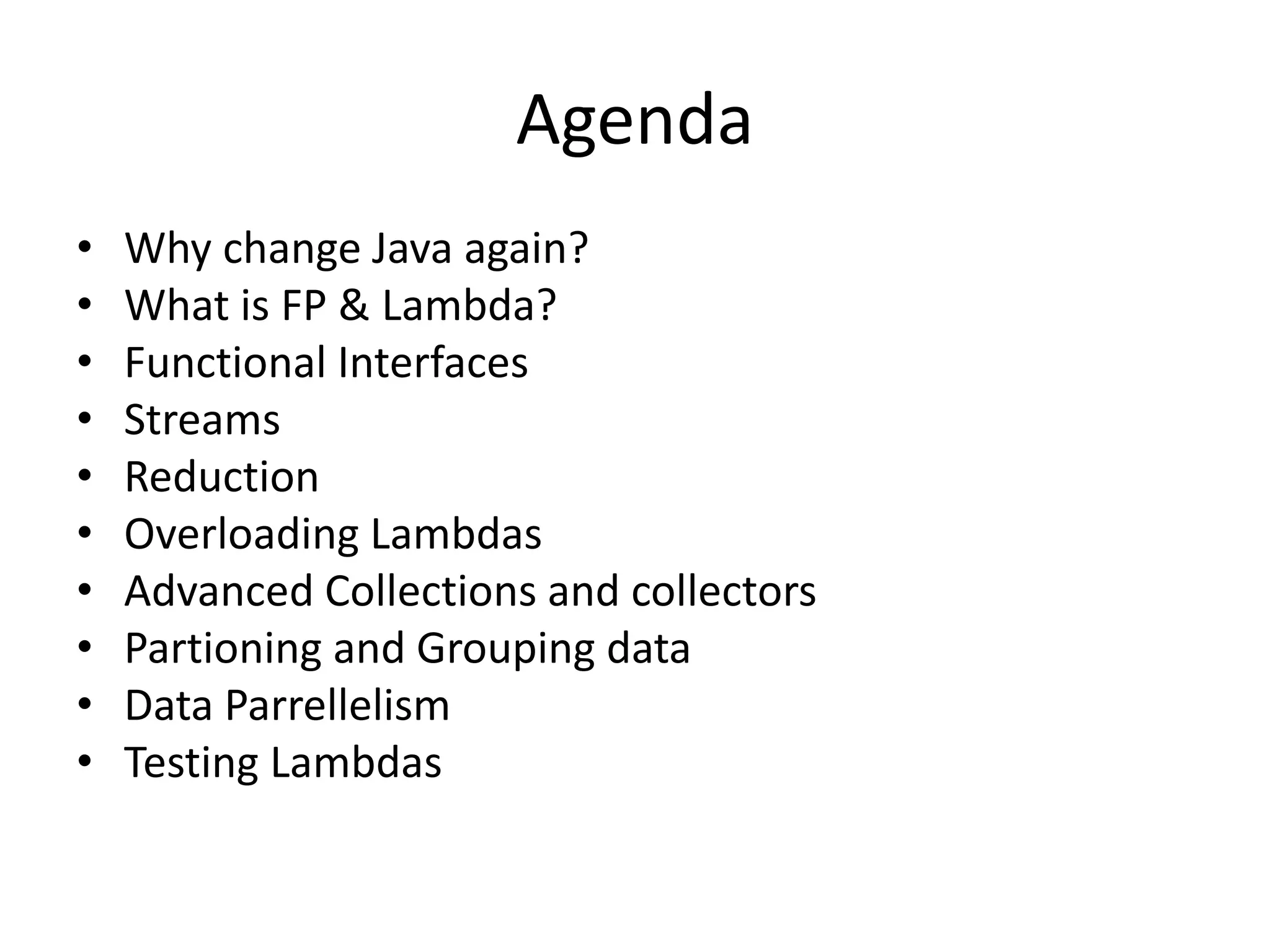
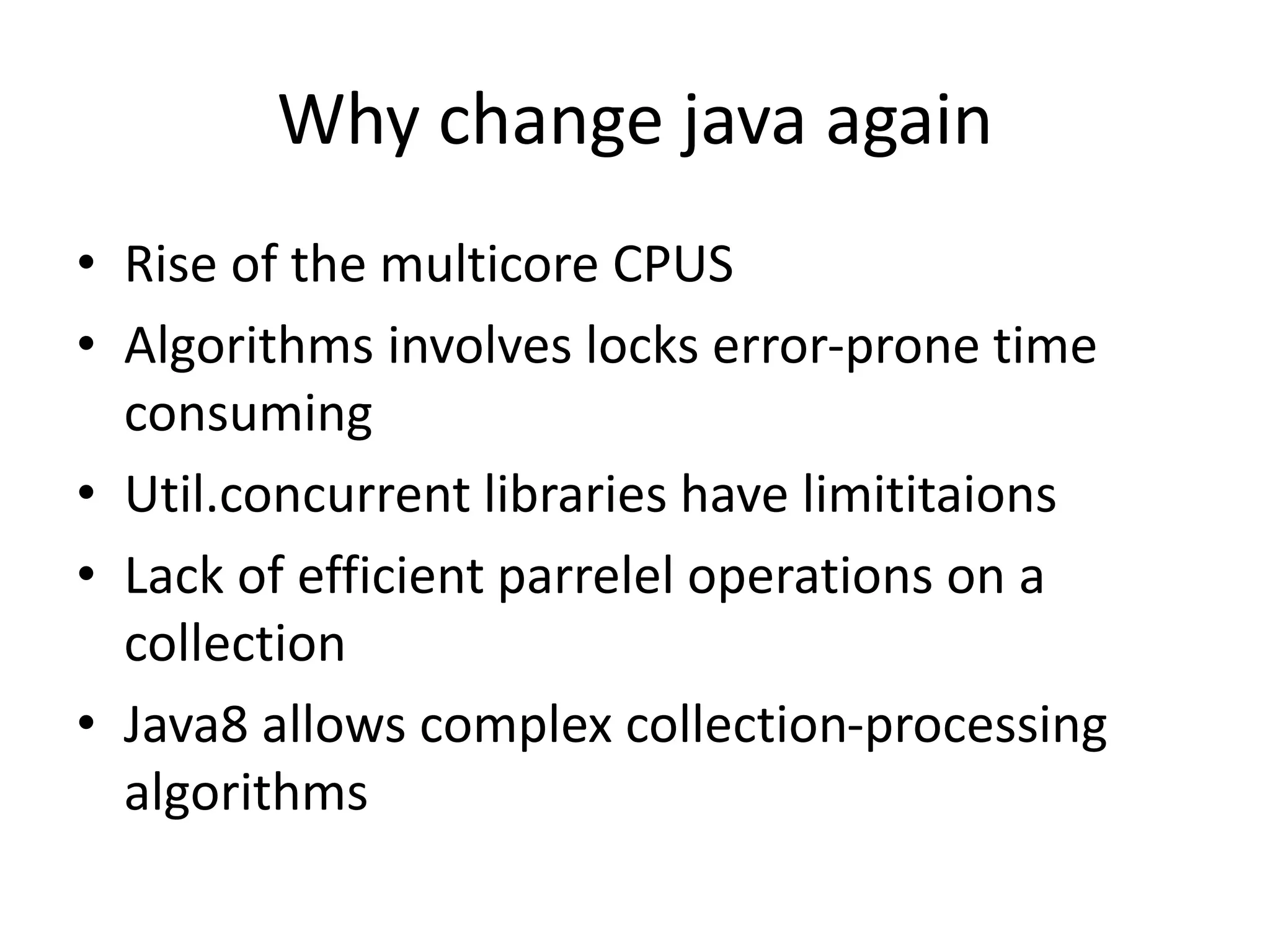
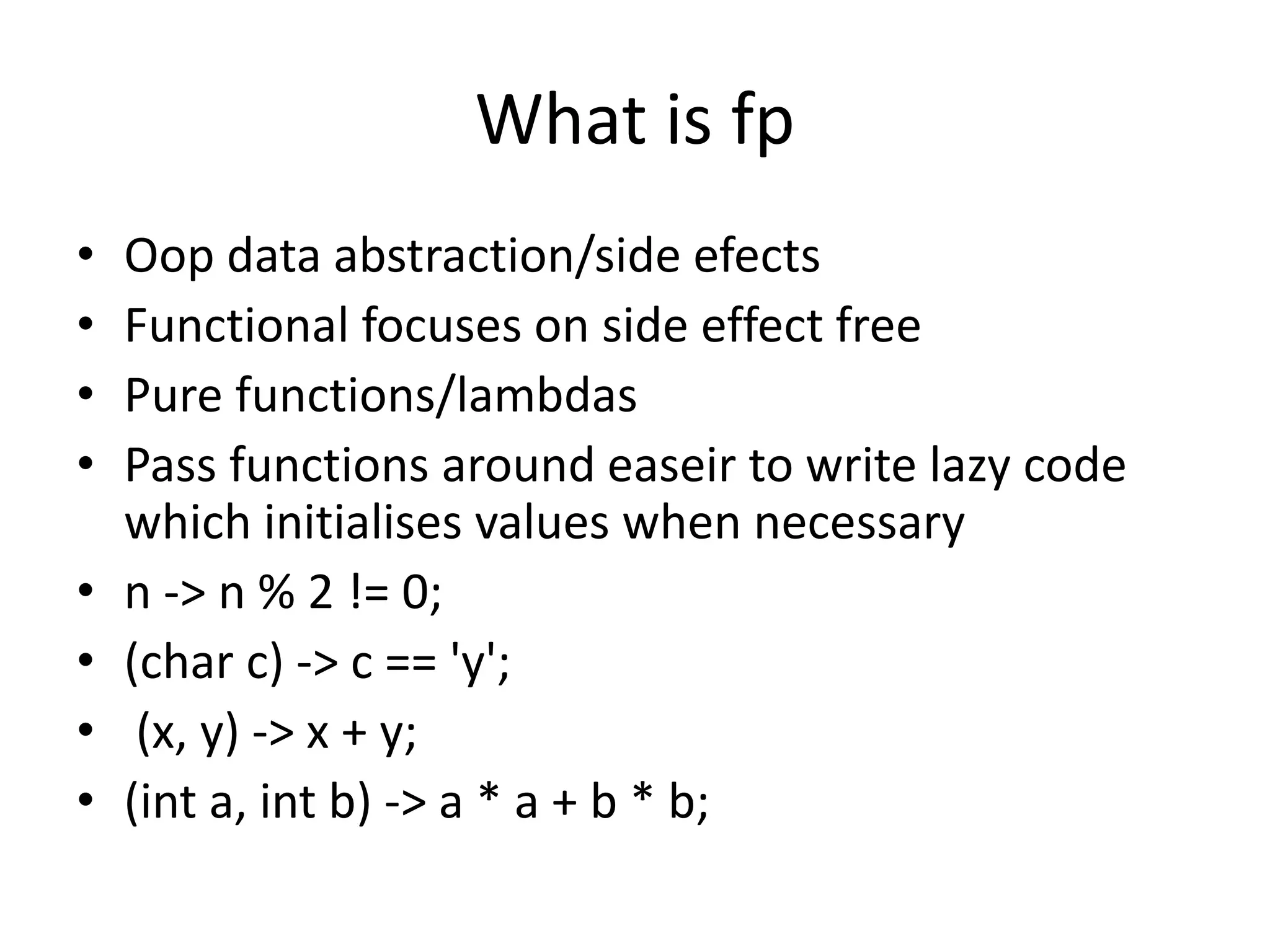
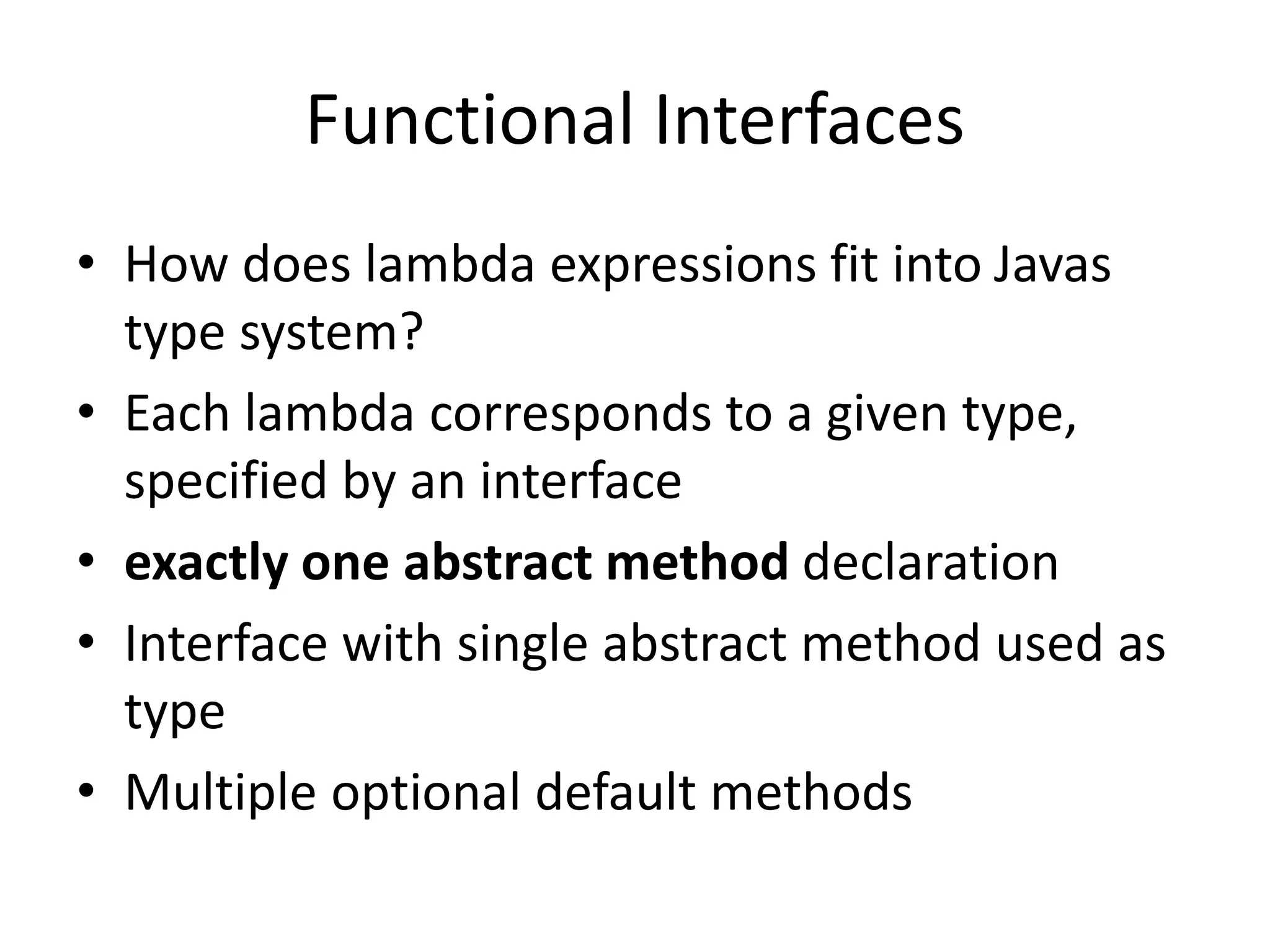
![Define a functional interface
@FunctionalInterface
public interface Calculator {
abstract int calculate(int x,int y);
}
public class FPDemo {
public static void main(String[] args) {
Calculator f=(x,y)->(x+y);
int z = f.calculate(3, 4);
System.out.println(z);
test((p,q)->p*q);
}
public static int test(Calculator cal) {
Return cal.calculate(4, 8);
}](https://image.slidesharecdn.com/java8lambda-pruned-160519152614/75/Java8lambda-6-2048.jpg)
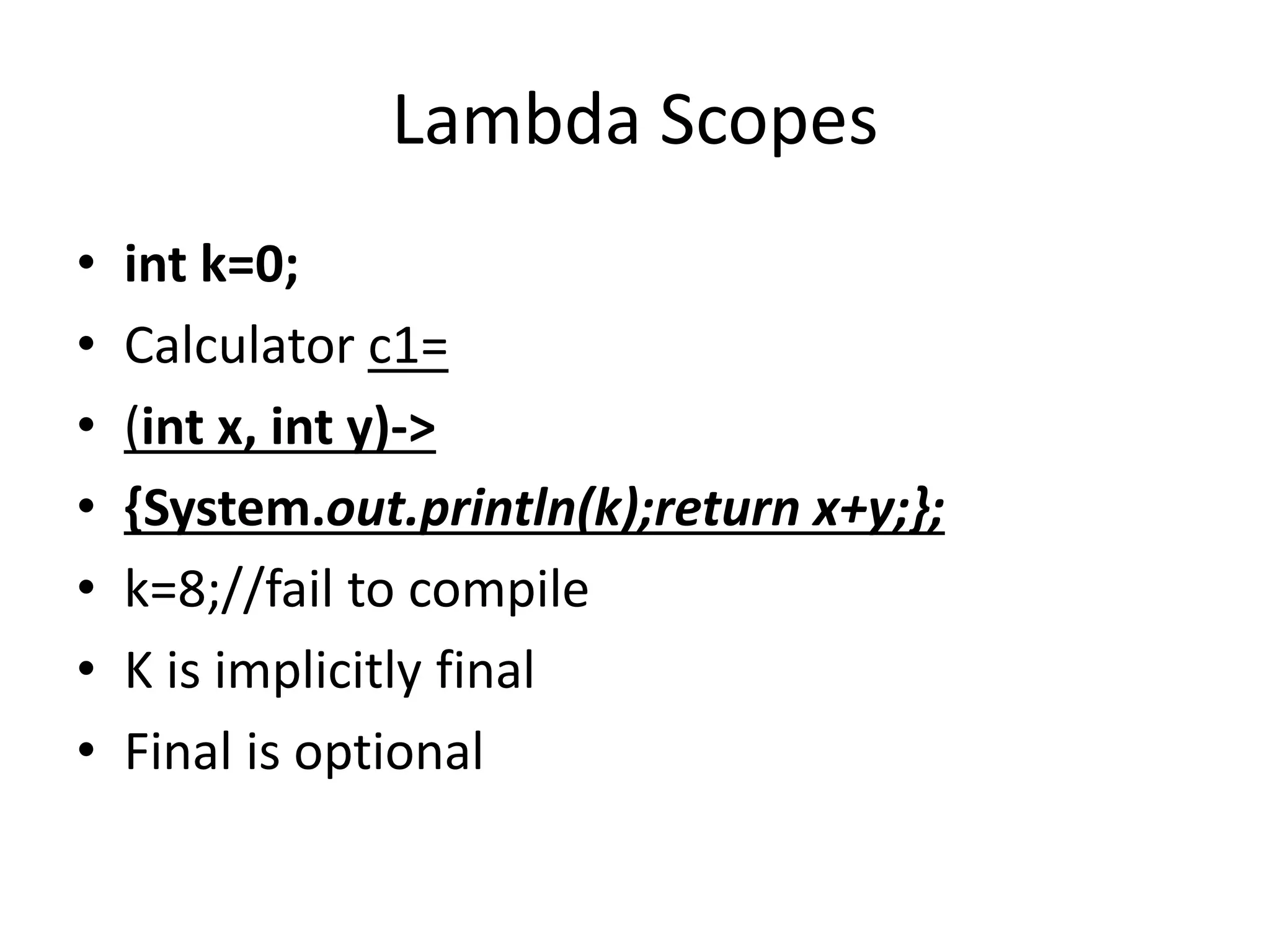
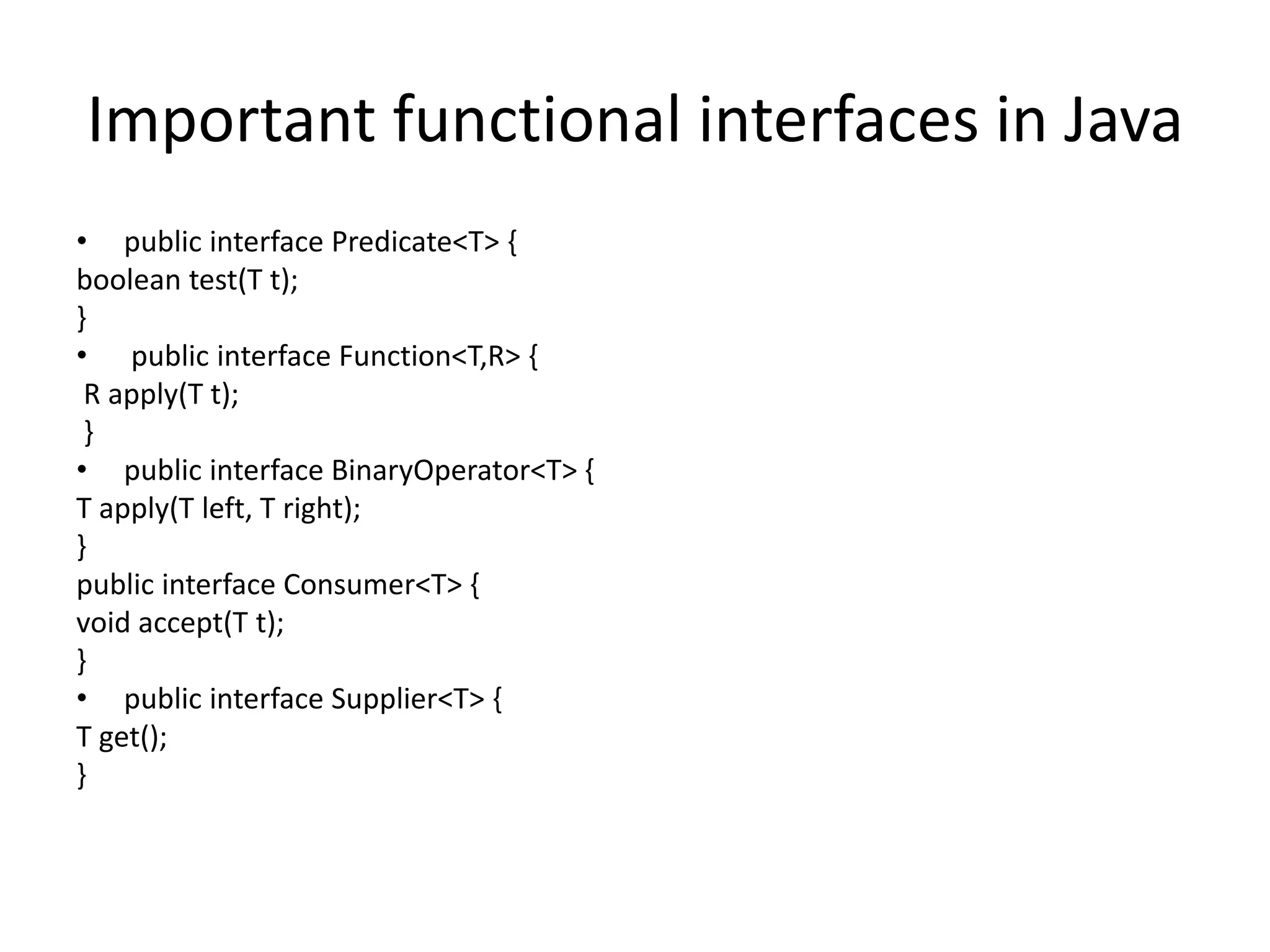
![Predicate
• package com.java8.general;
• import java.util.Objects;
• import java.util.function.Predicate;
• public class PredicateTest {
• public static void main(String[] args) {
• Predicate<String> predicate = (s) -> s.length() > 0;
• boolean s=predicate.test("foo"); // true
• predicate.negate().test("foo");
• Predicate<Boolean> nonNull = Objects::nonNull;
• Predicate<Boolean> isNull = Objects::isNull;
• Predicate<String> isEmpty = String::isEmpty;
• Predicate<String> isNotEmpty = isEmpty.negate();
• }
• }](https://image.slidesharecdn.com/java8lambda-pruned-160519152614/75/Java8lambda-9-2048.jpg)
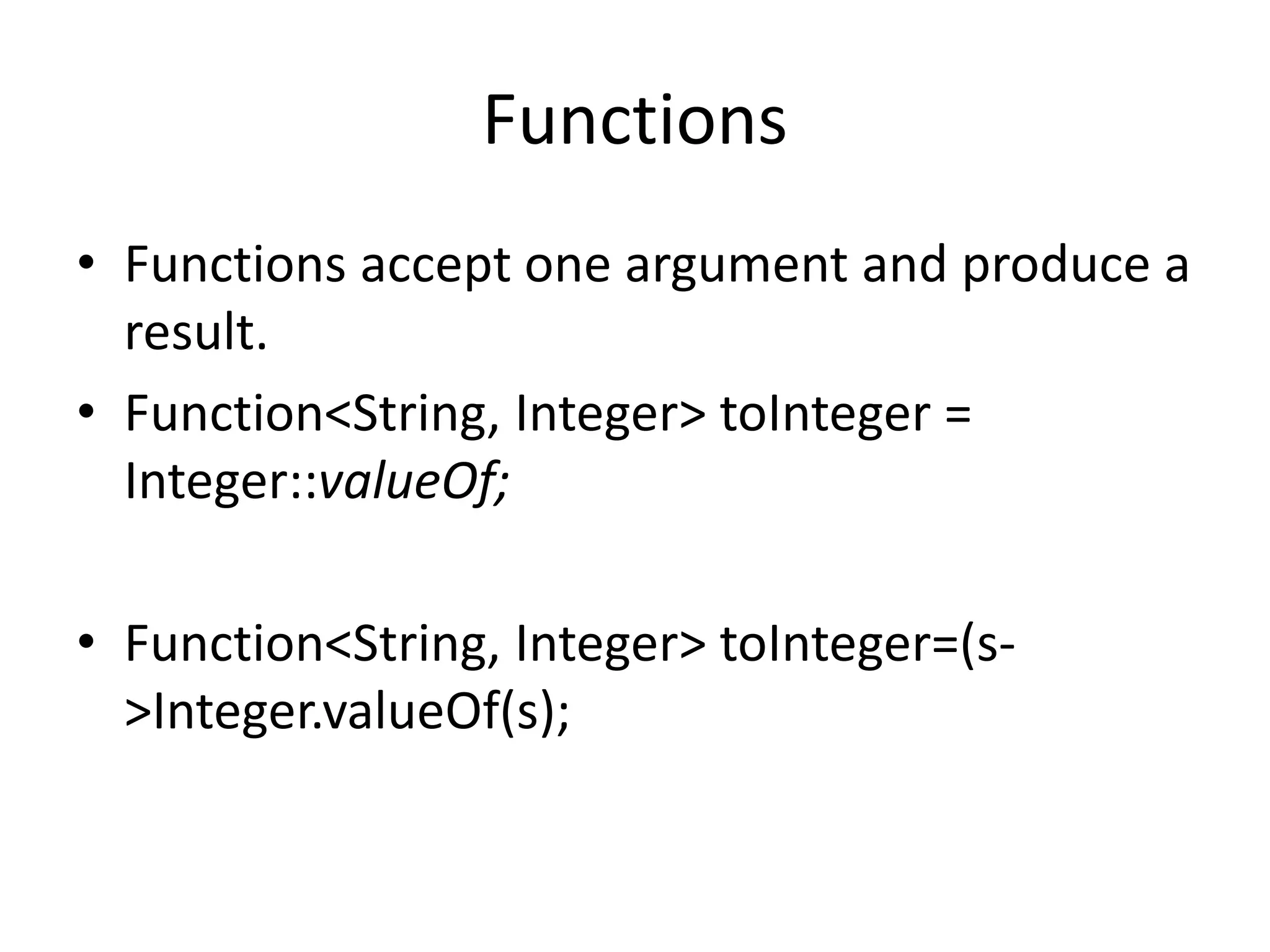
![Suppliers
• Suppliers produce a result of a given generic type.
Unlike Functions, Suppliers don't accept arguments.
• public class SupplierTest {
• public static void main(String[] args) {
• Supplier<SupplierTest> personSupplier =
SupplierTest::new;
• personSupplier.get(); // new Person
• }
• }](https://image.slidesharecdn.com/java8lambda-pruned-160519152614/75/Java8lambda-11-2048.jpg)
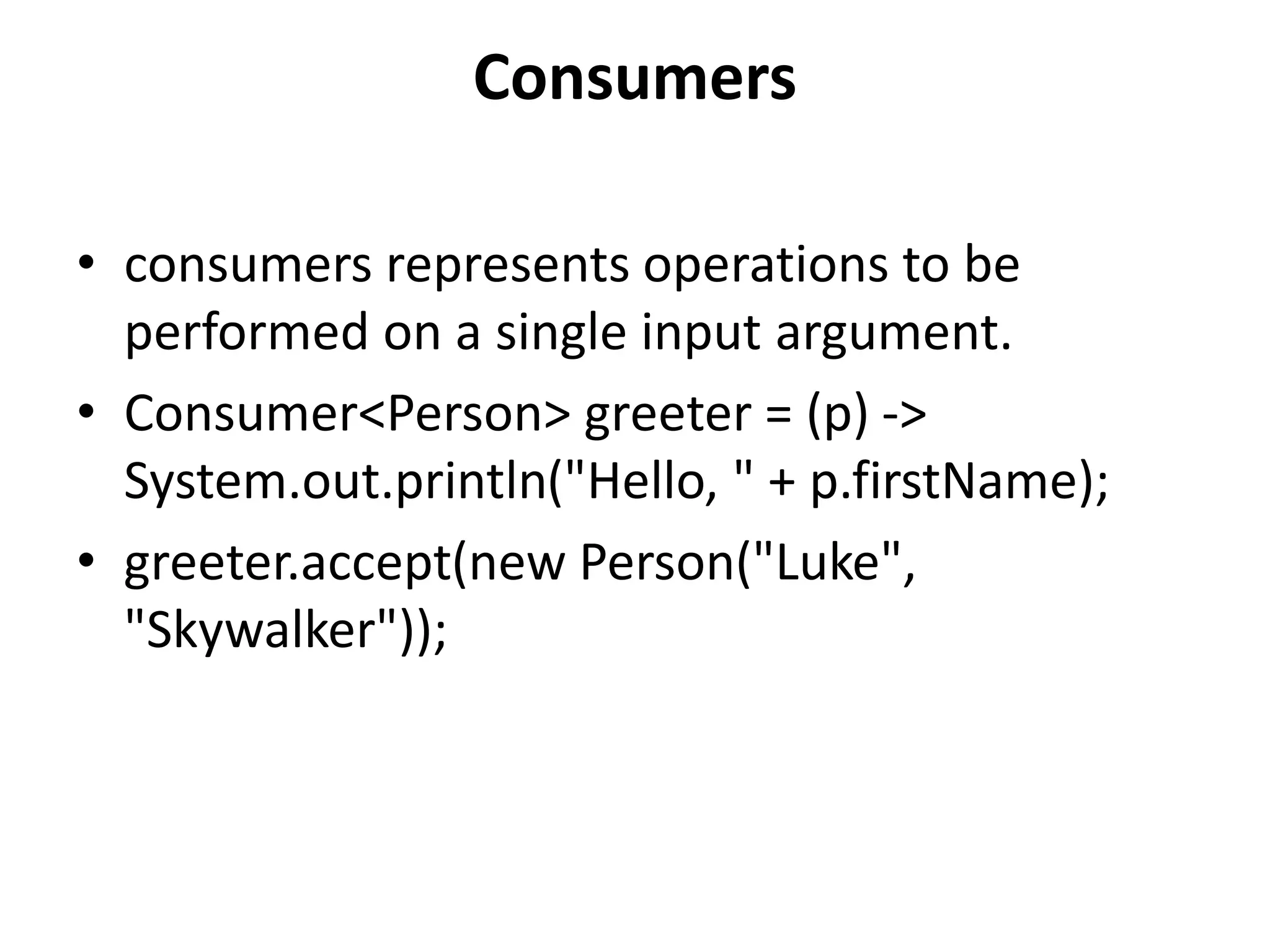
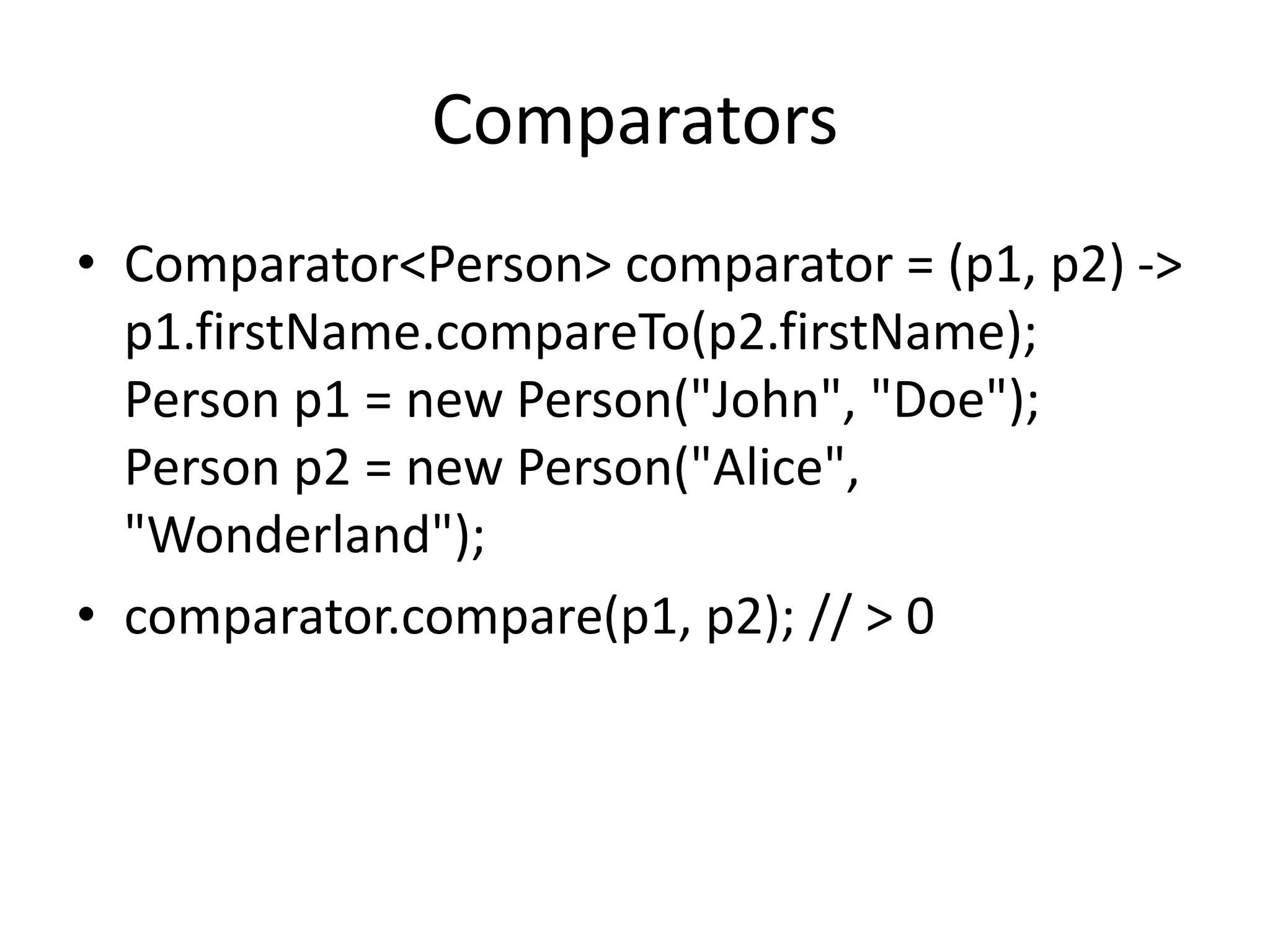
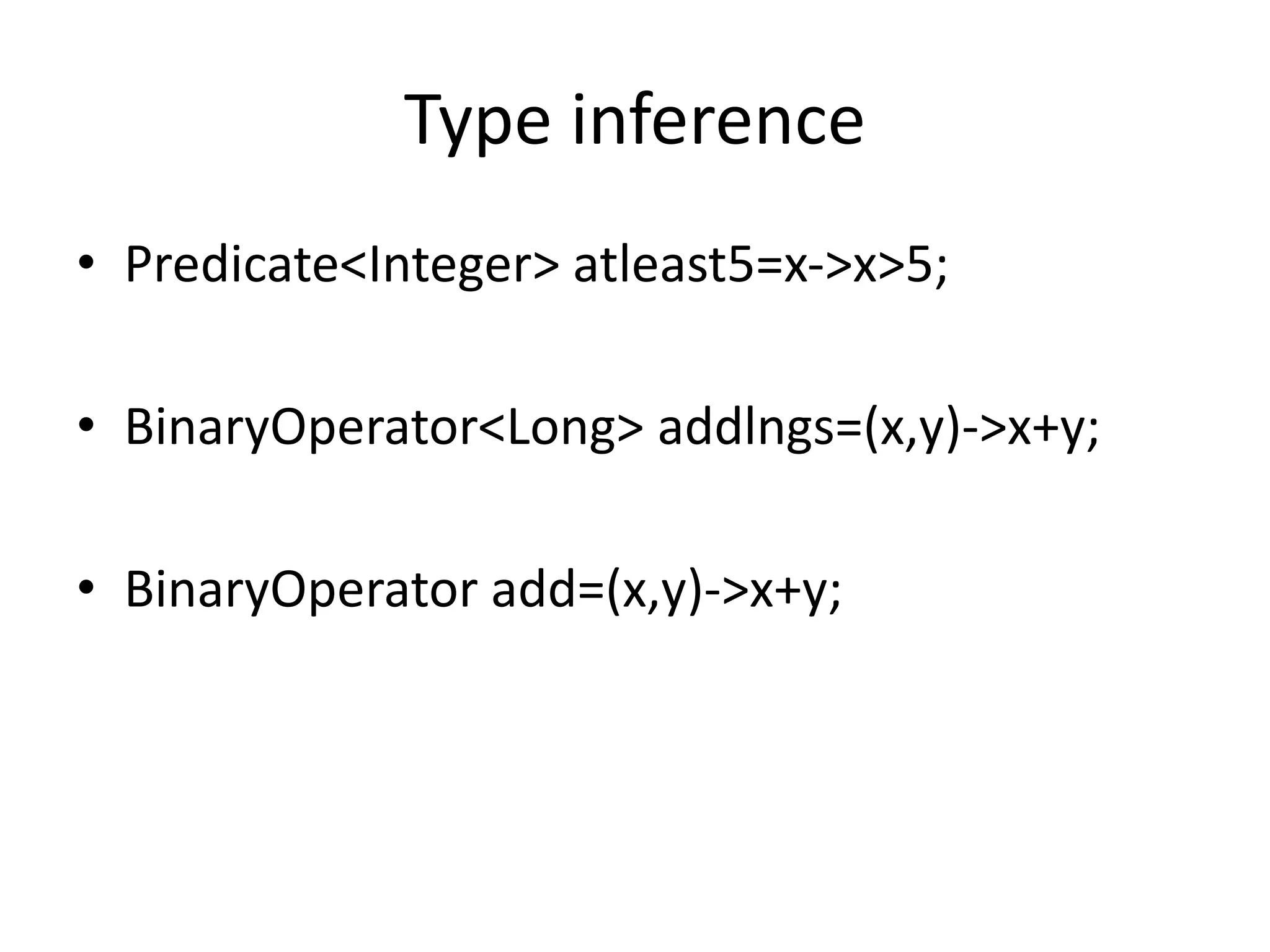
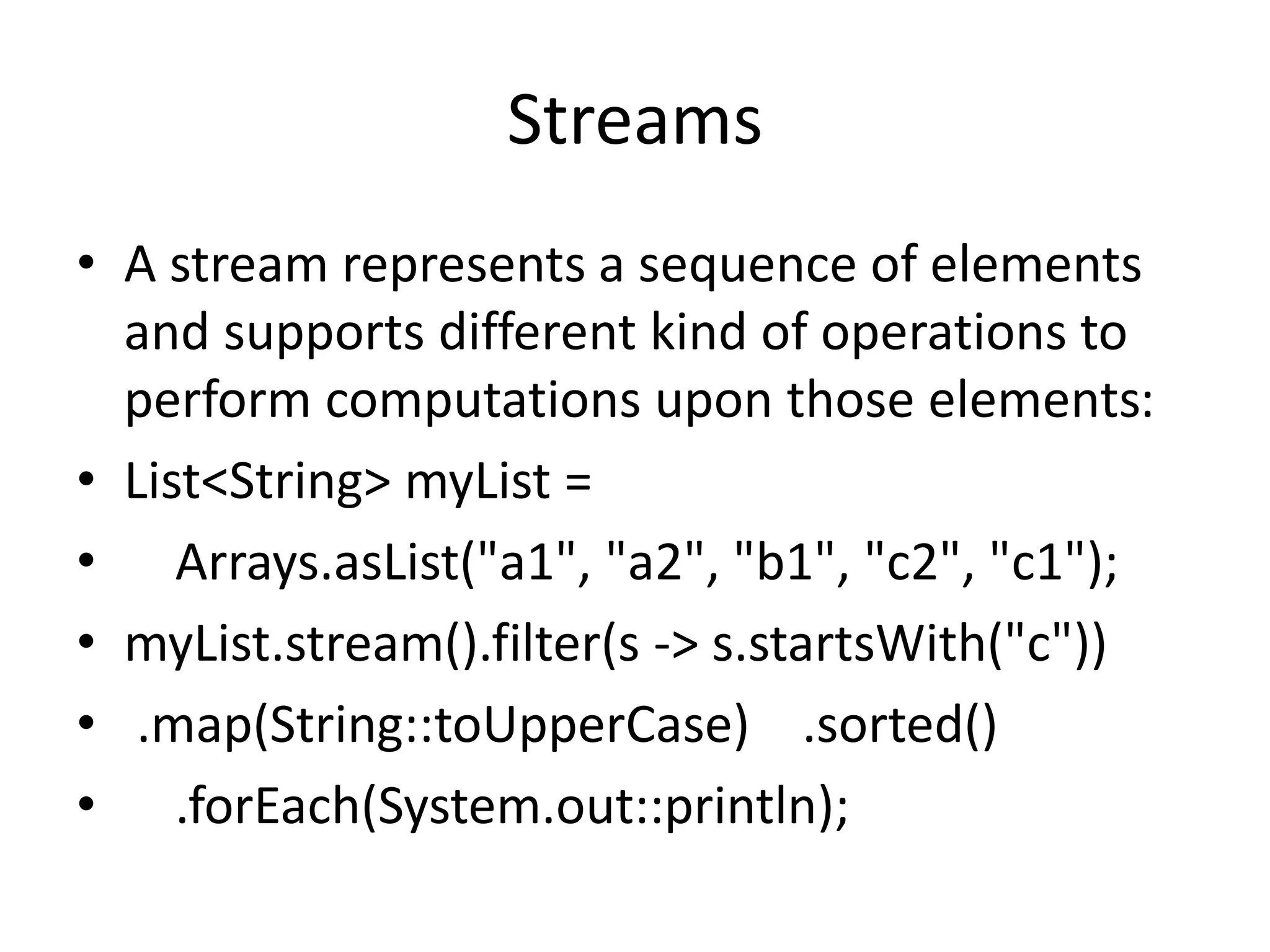
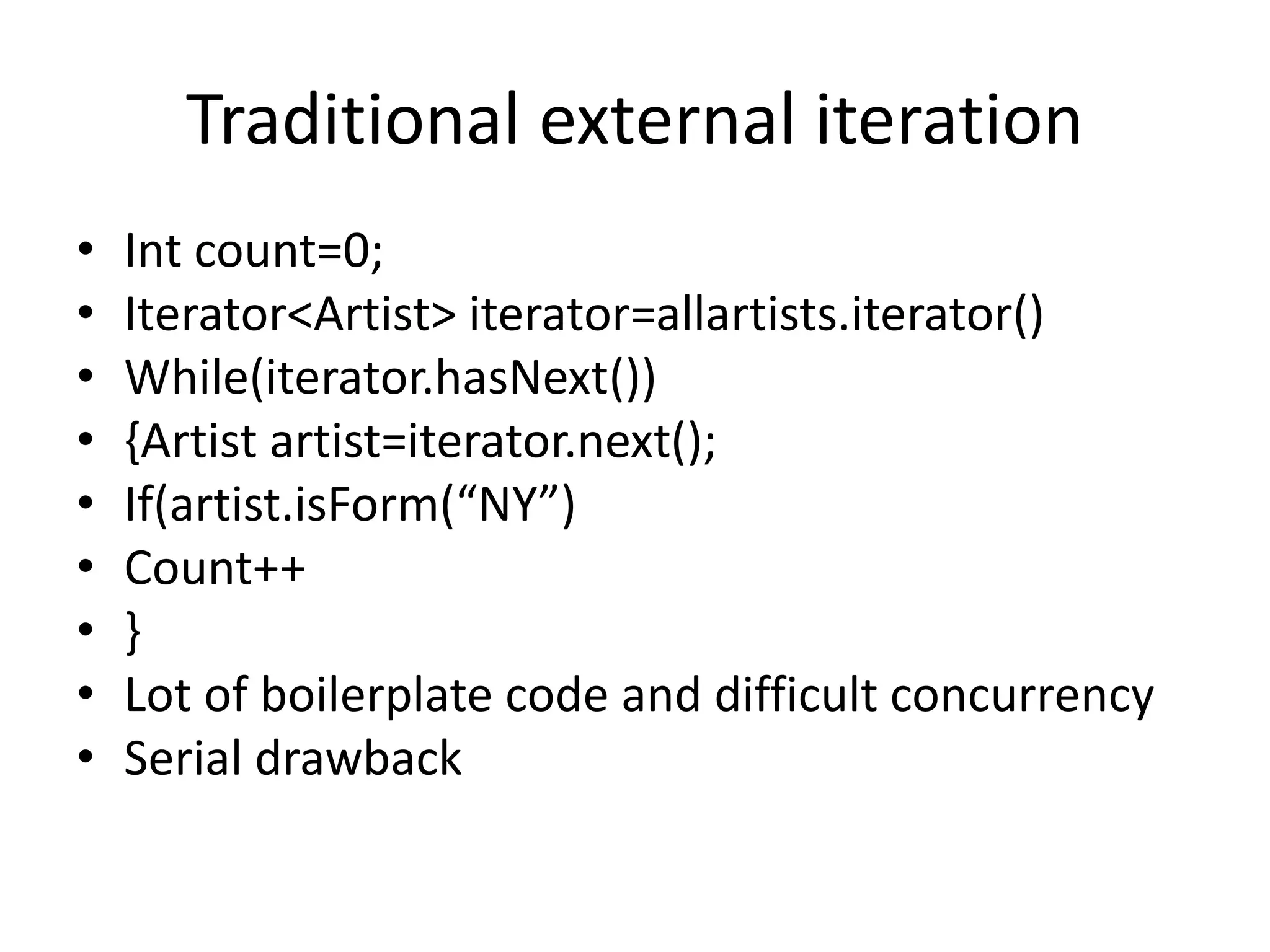
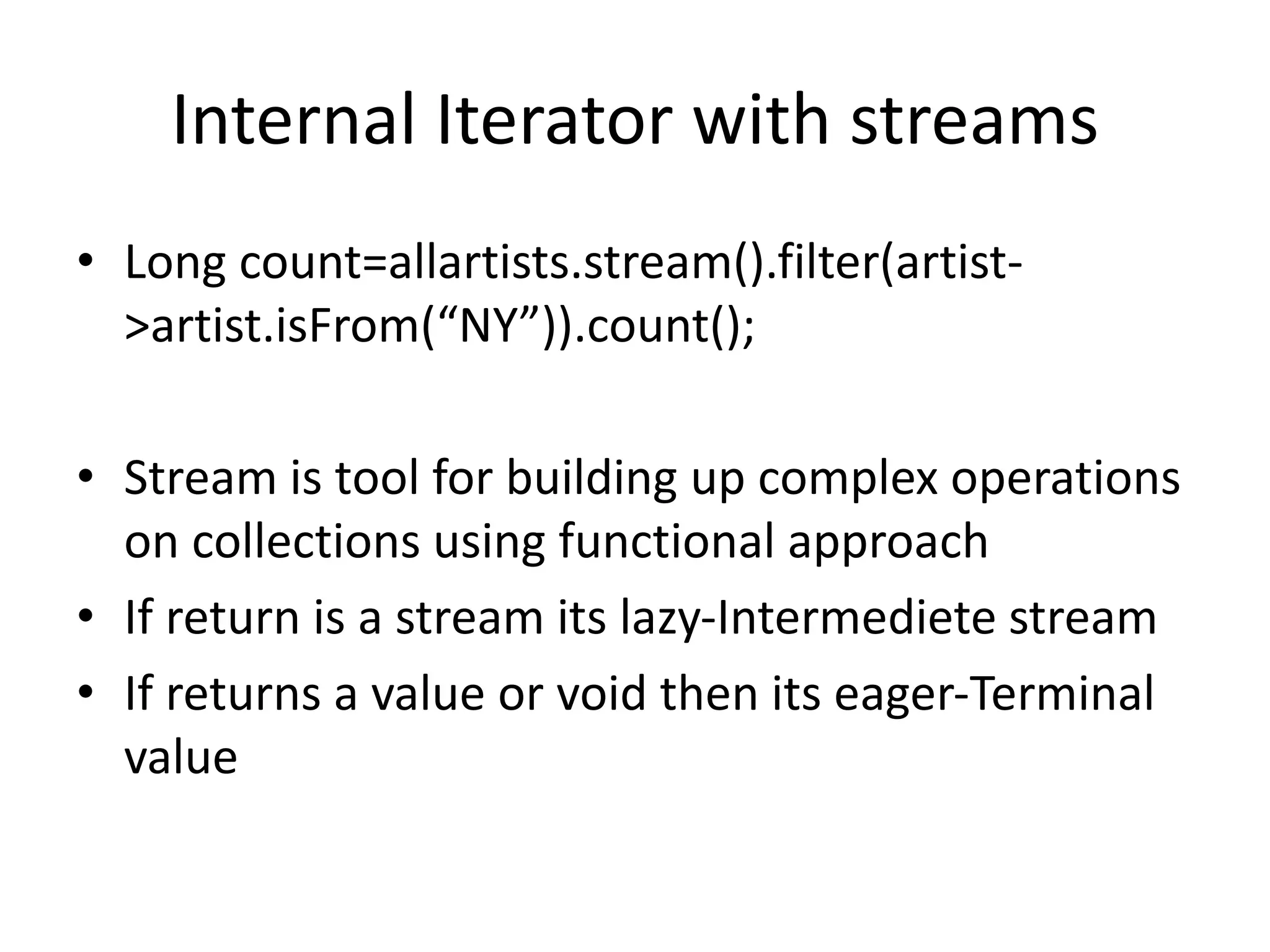
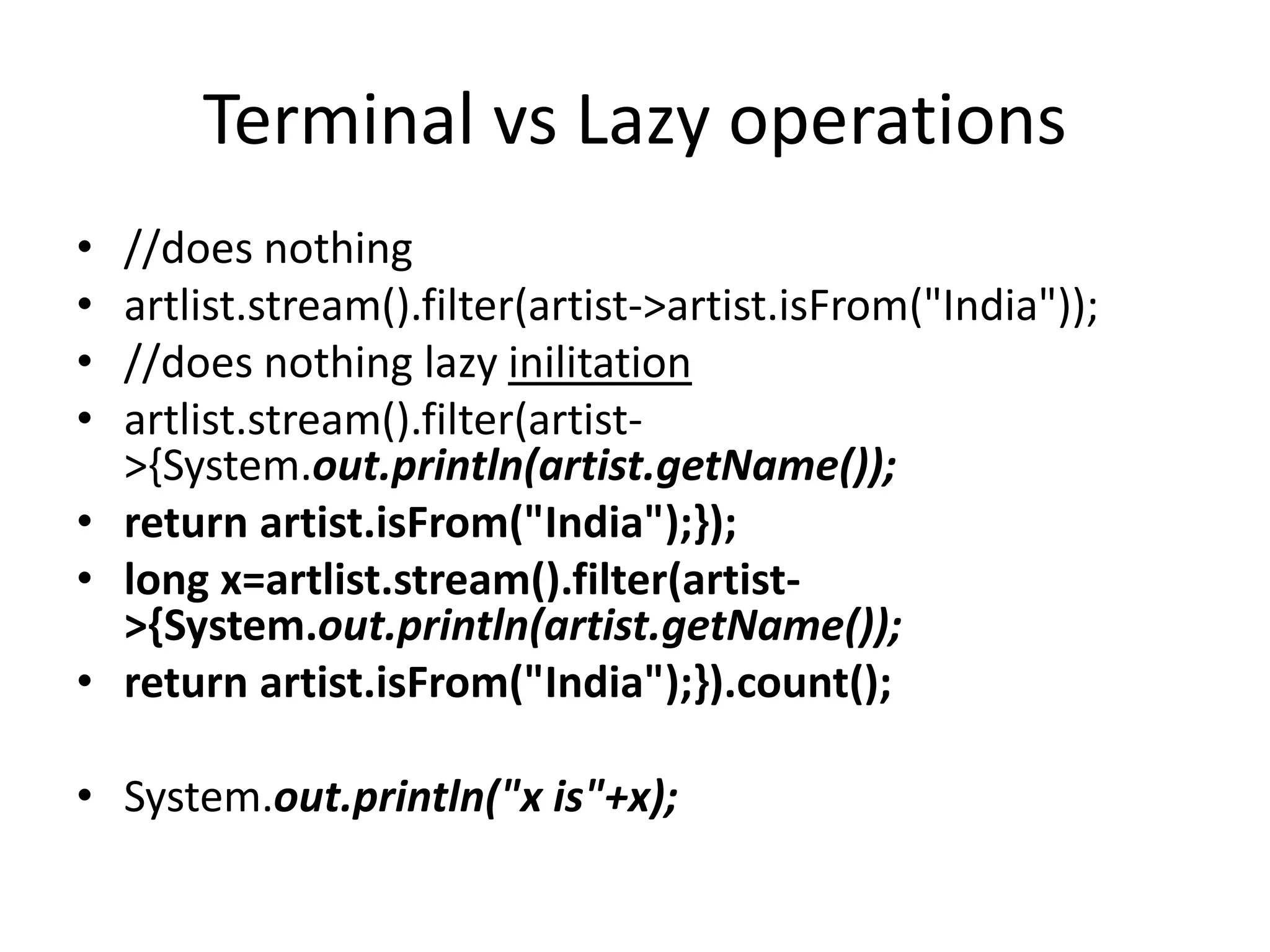
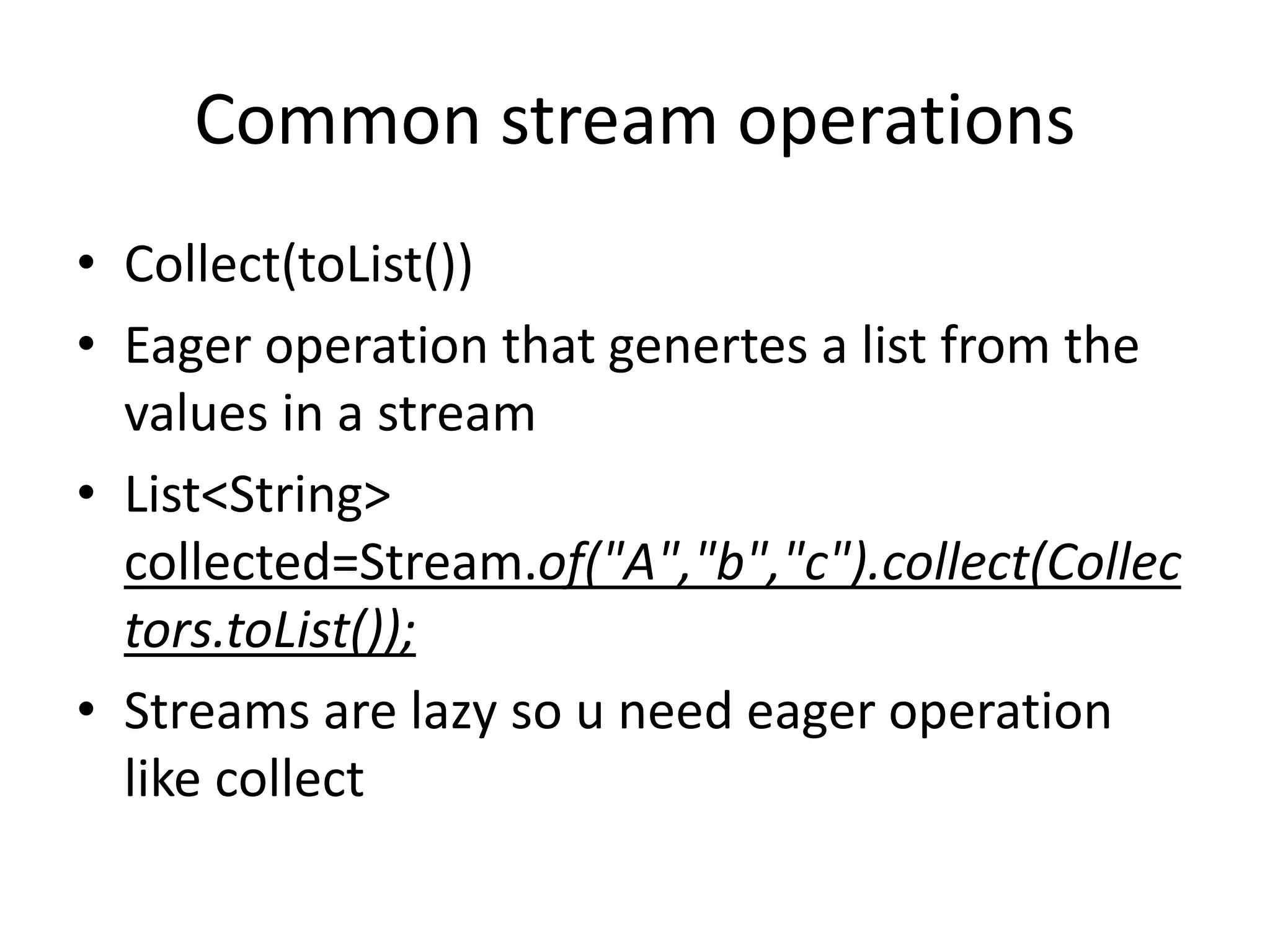
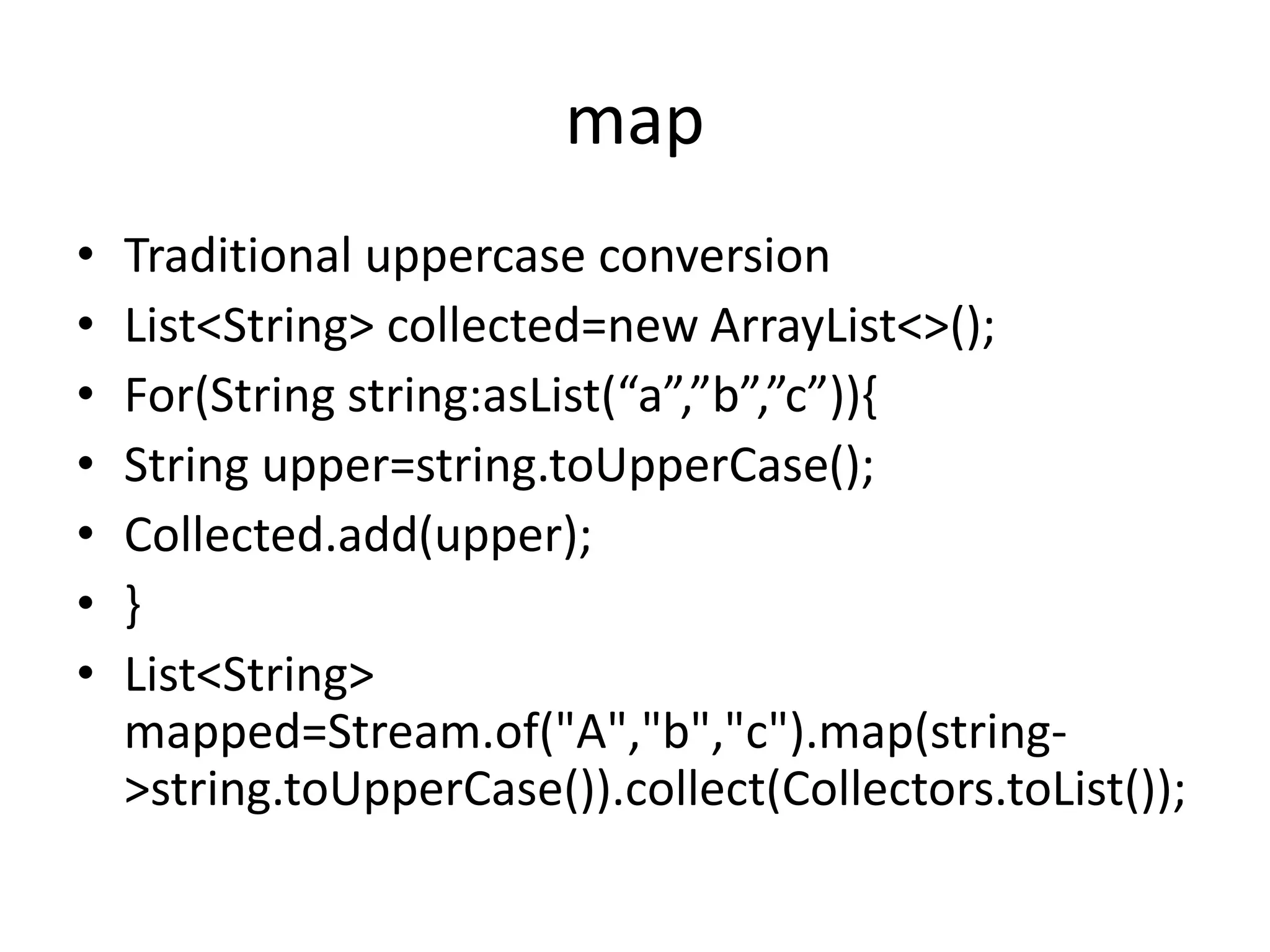
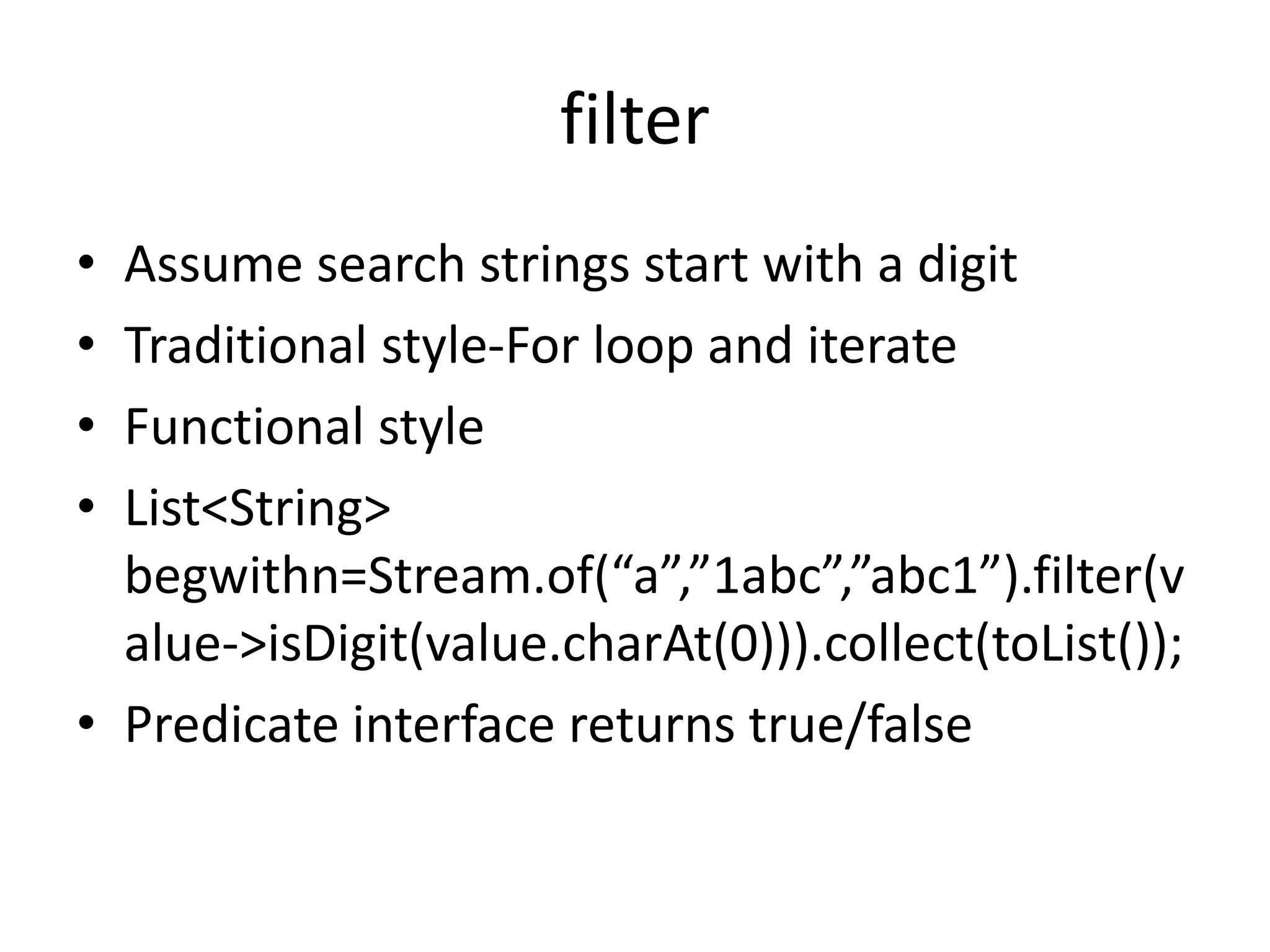
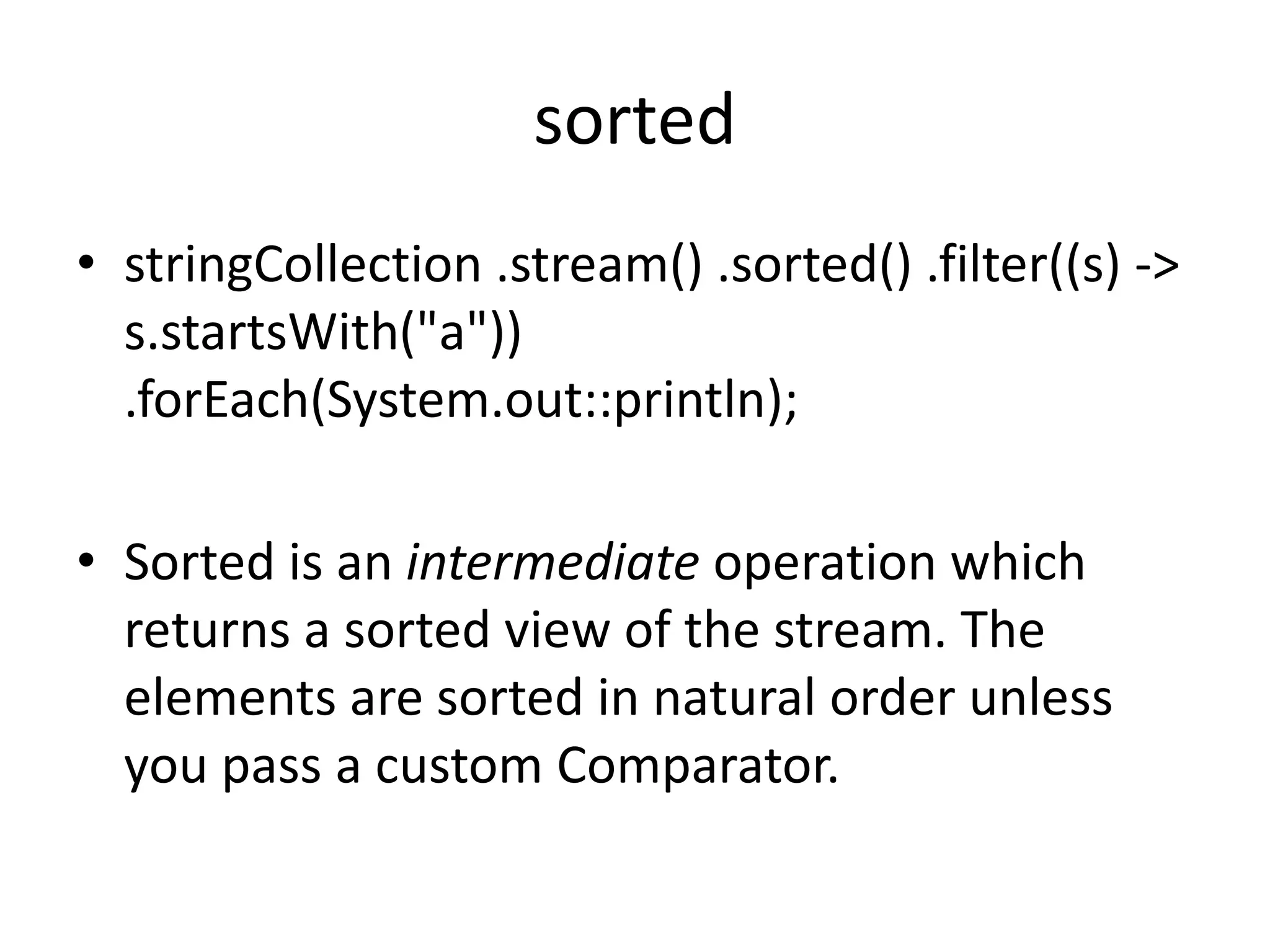
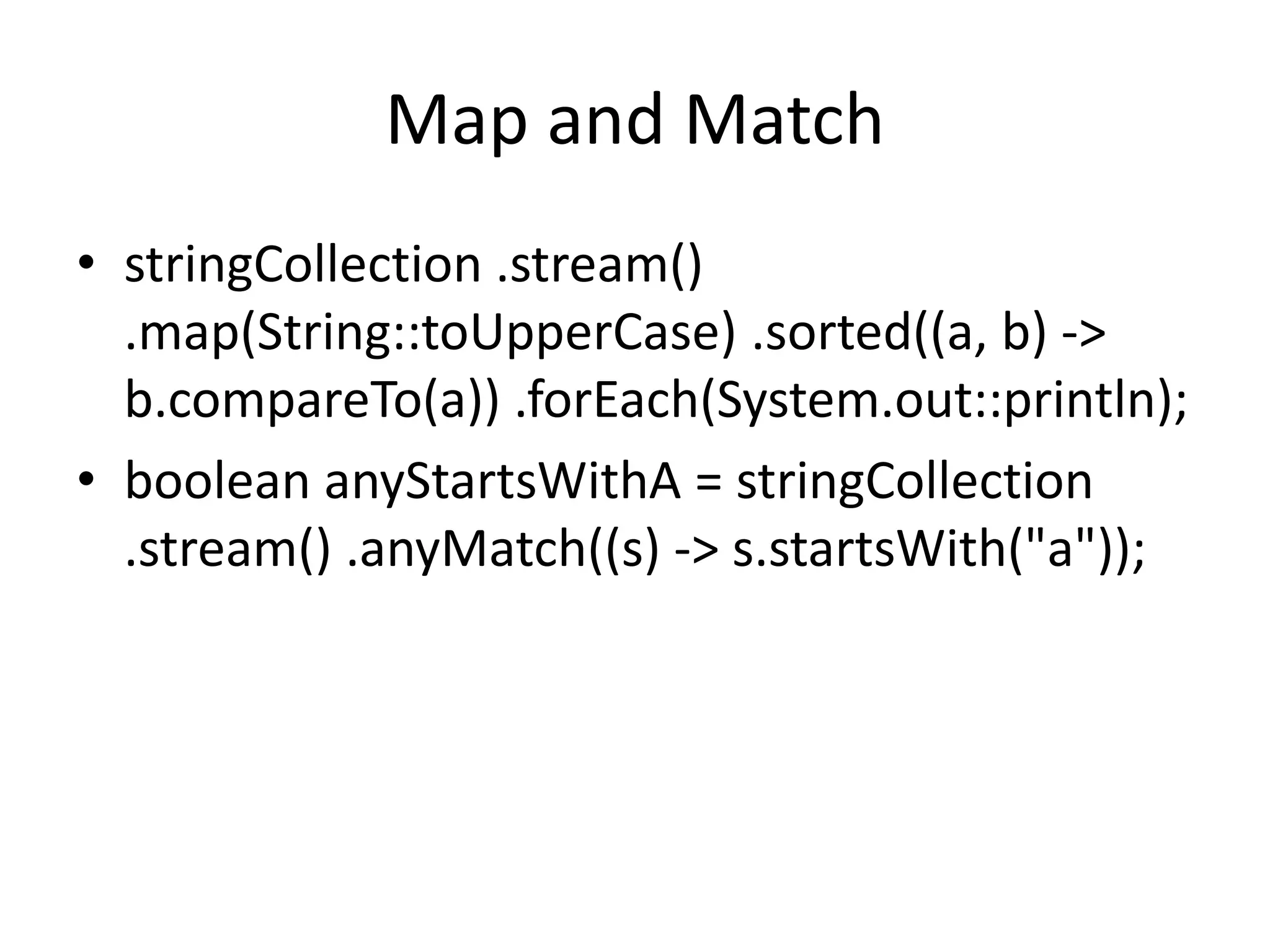
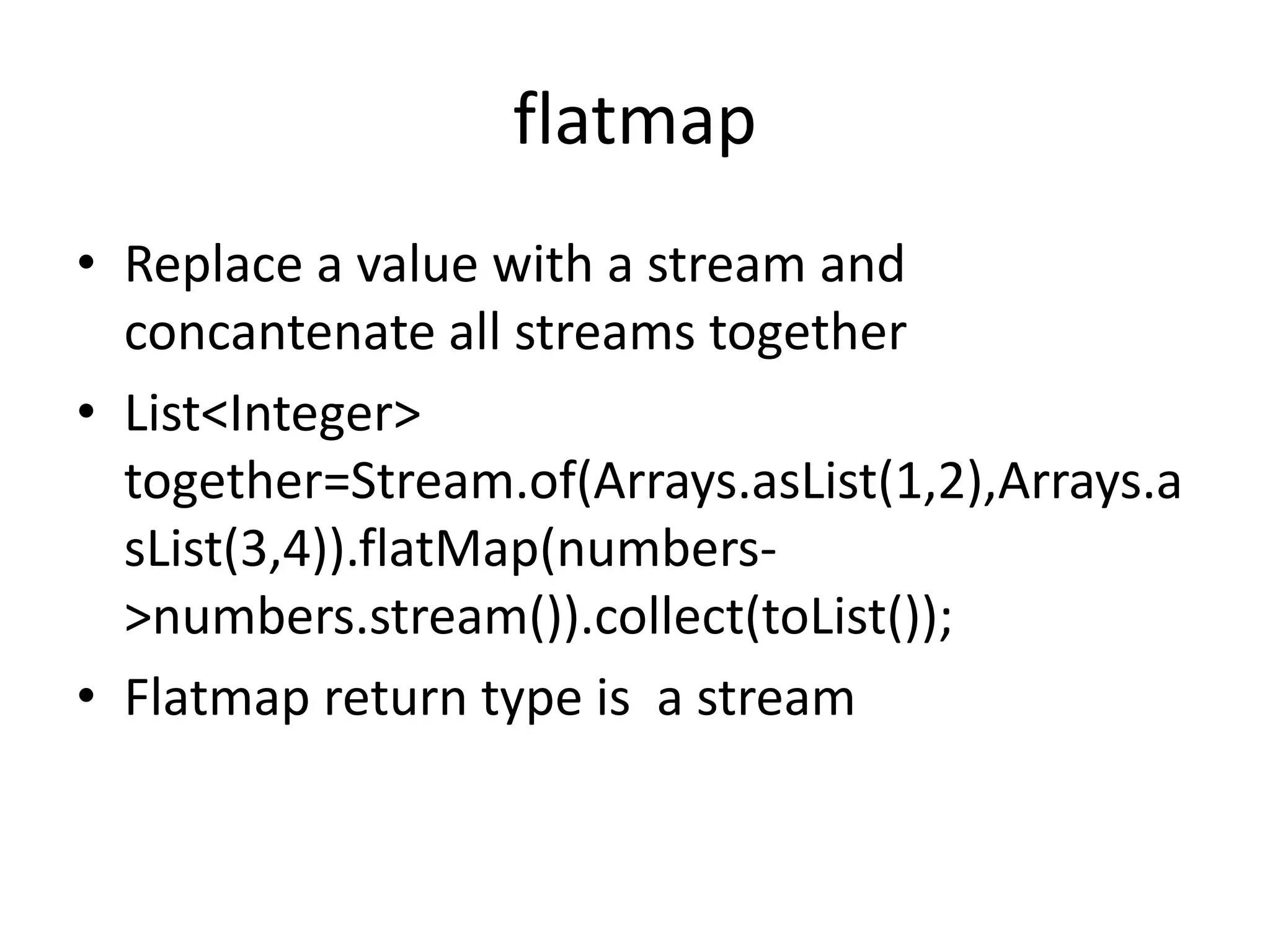
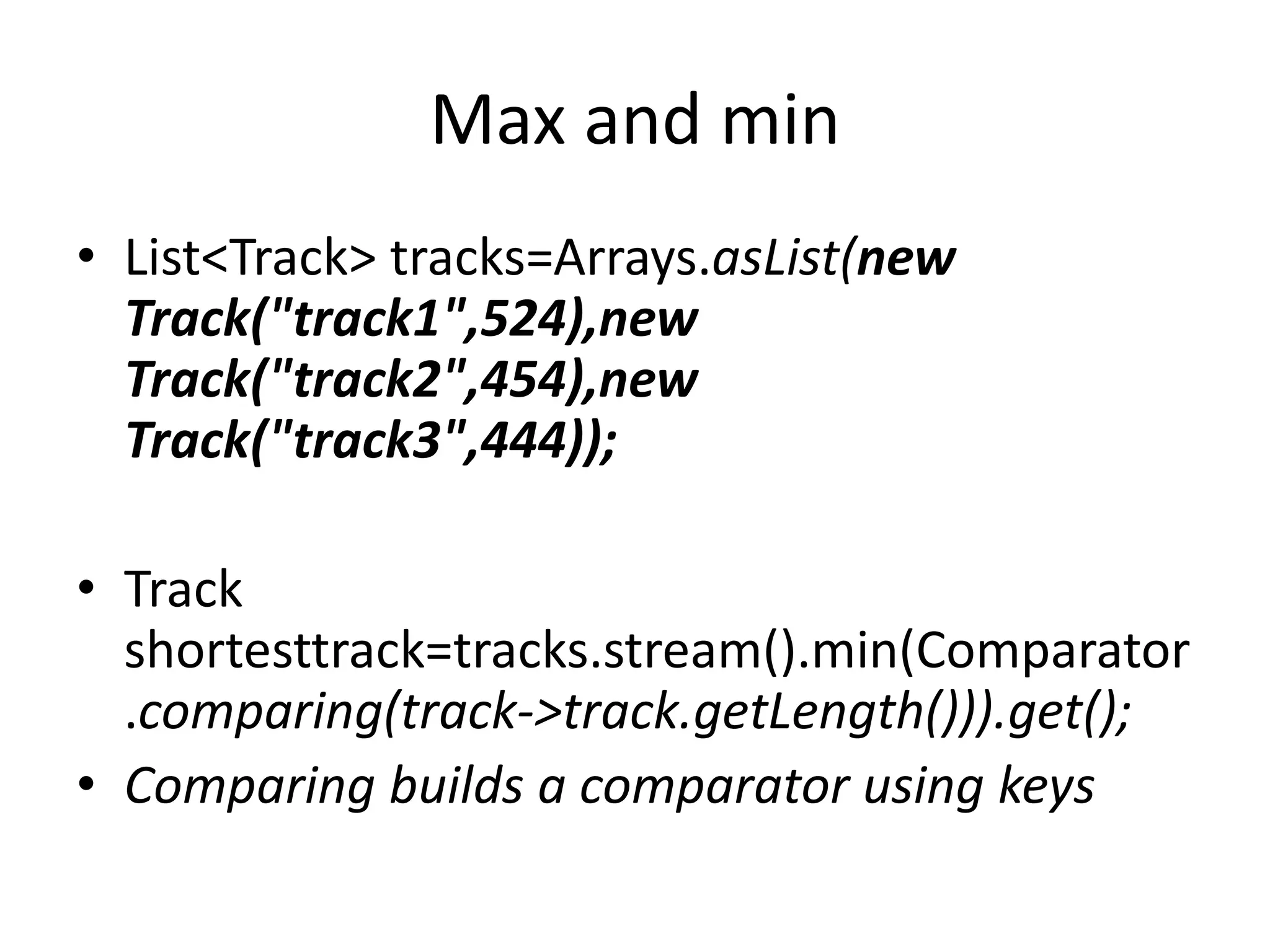
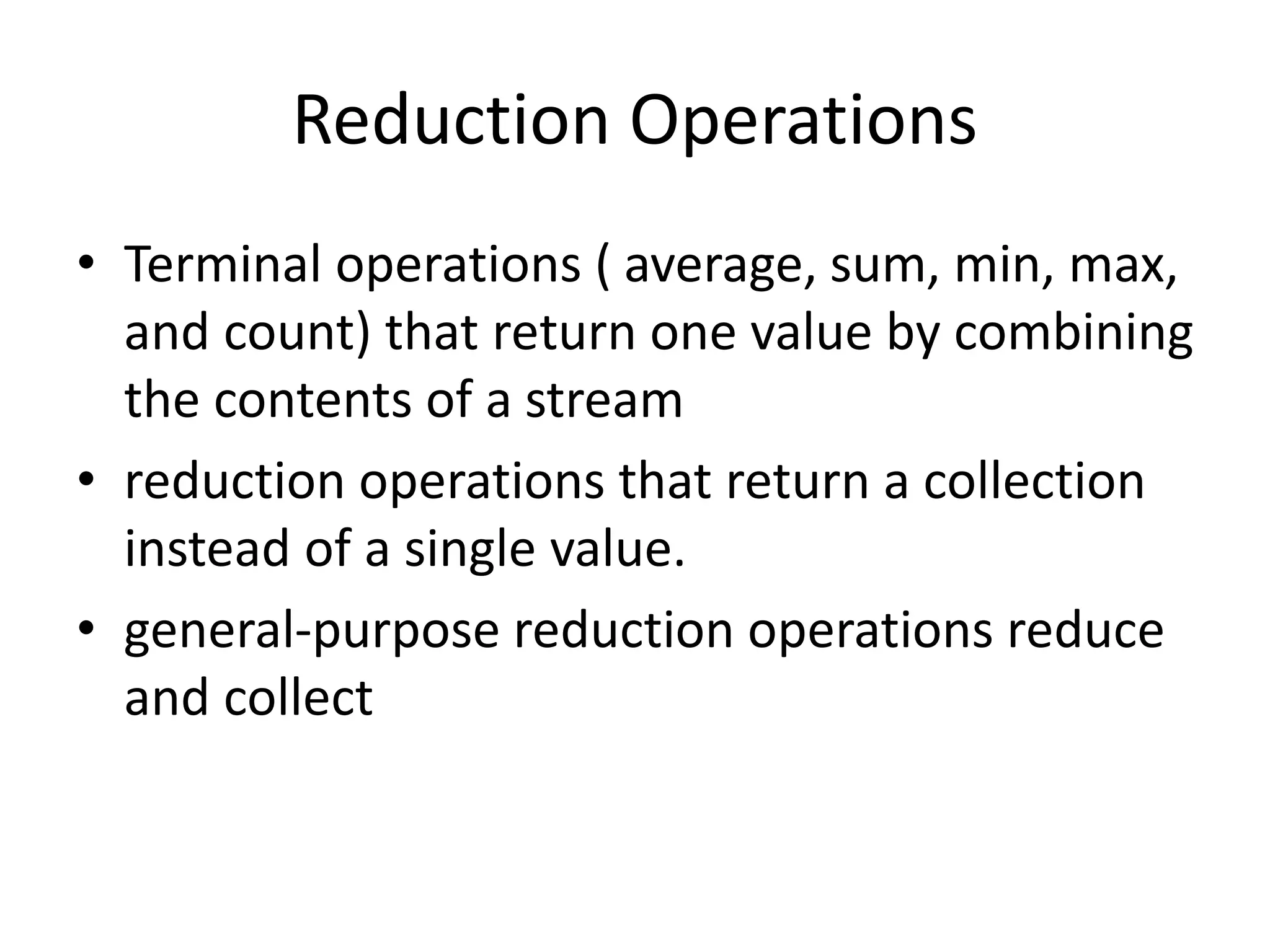
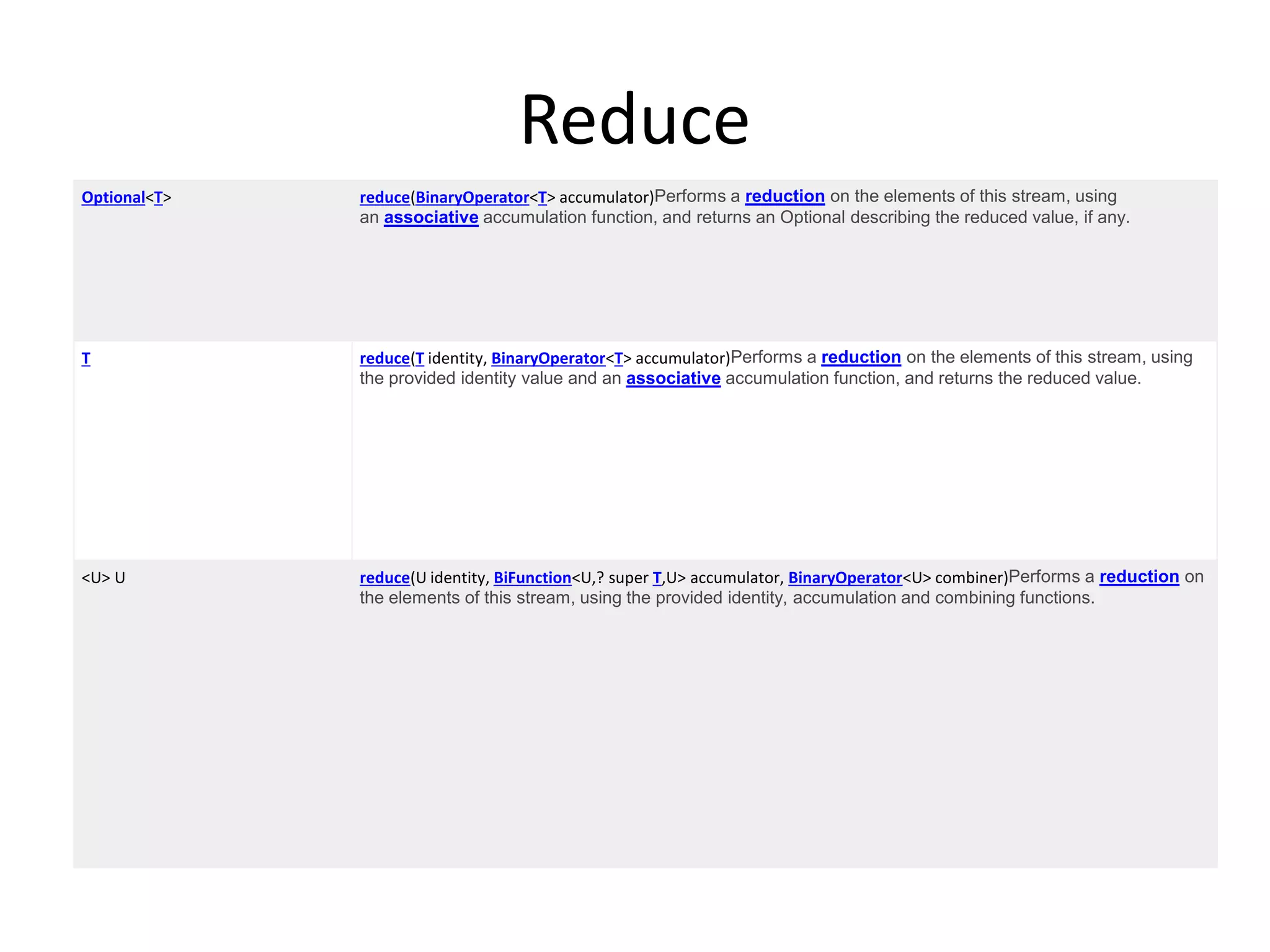
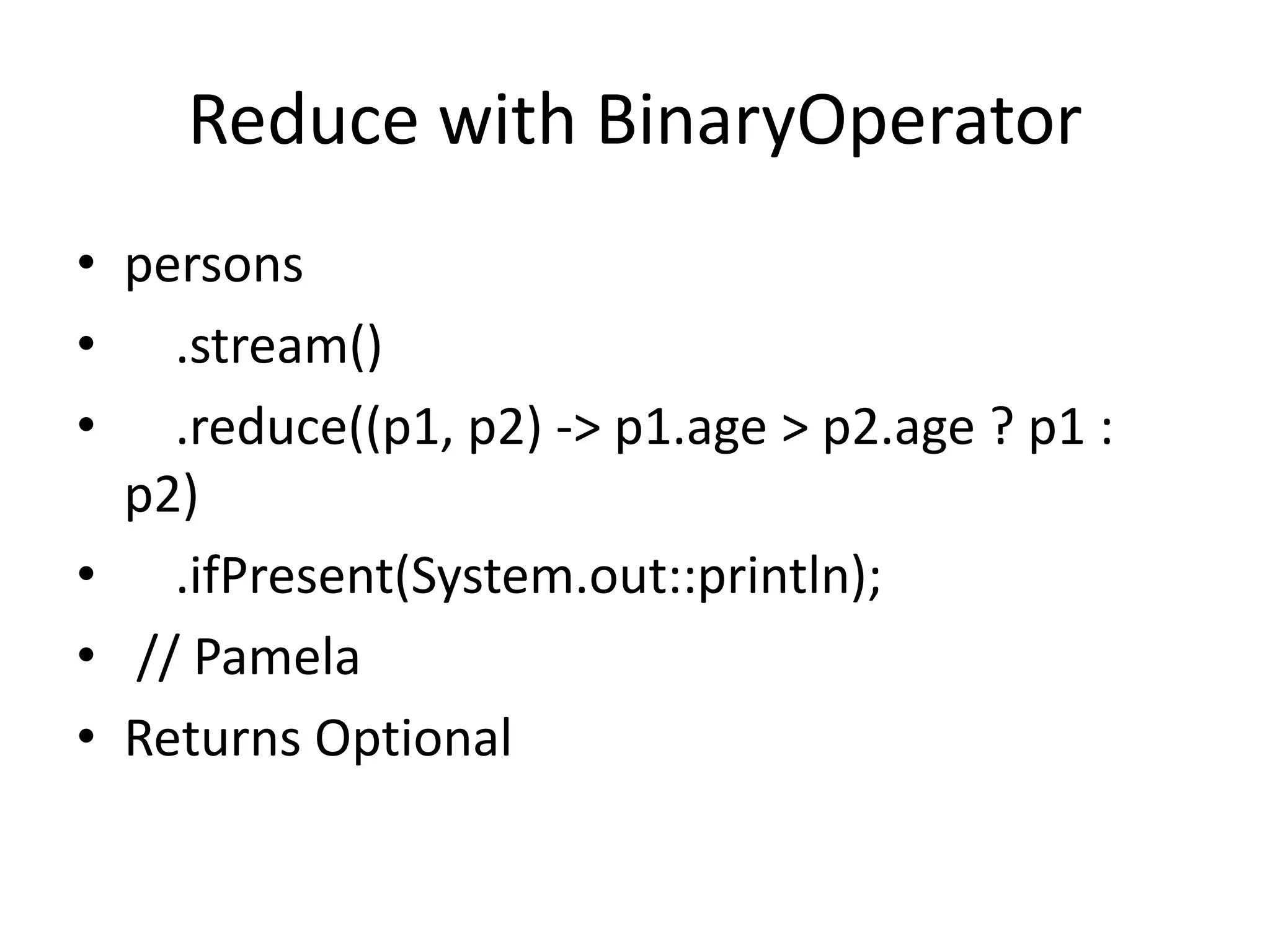
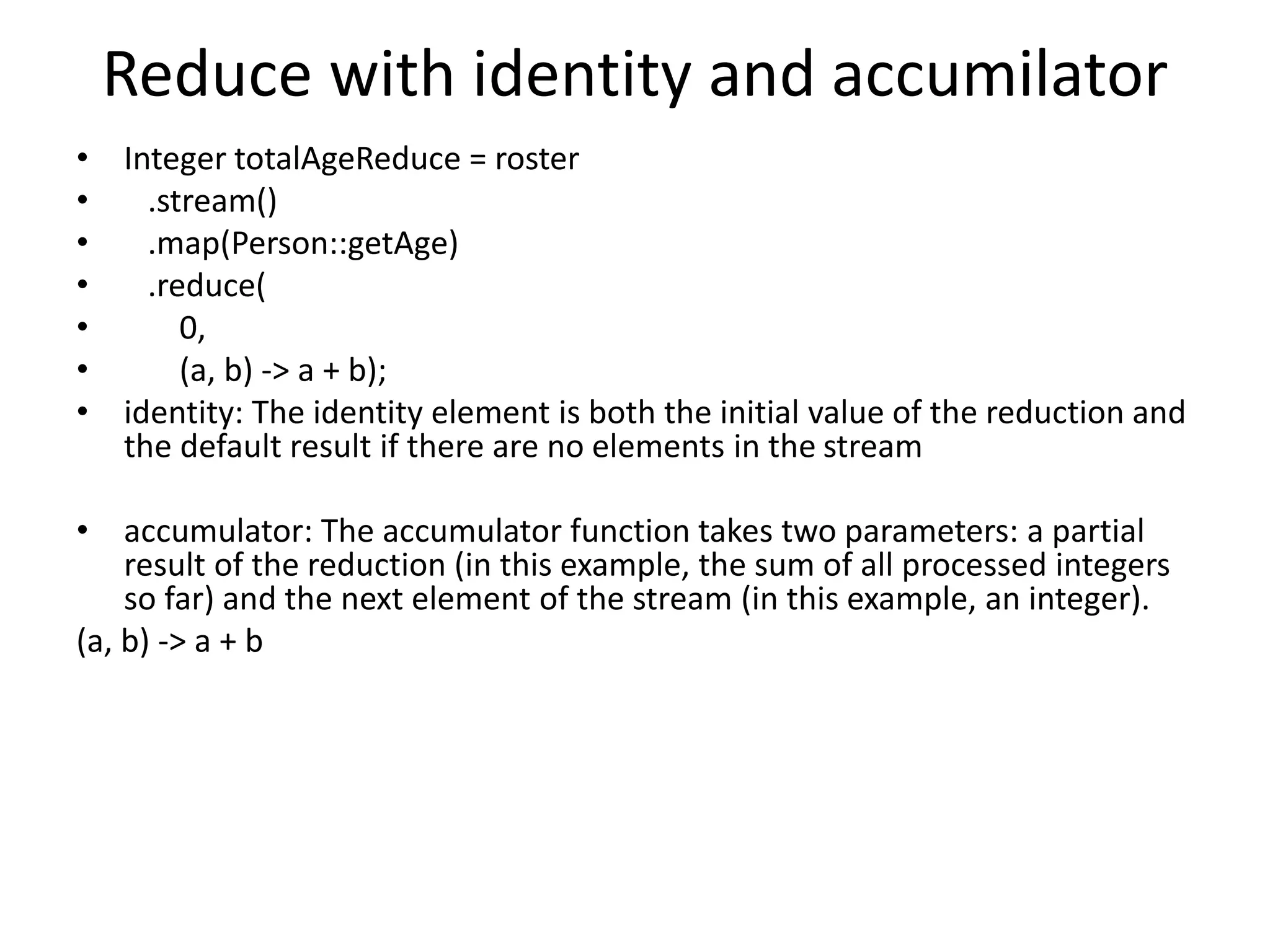
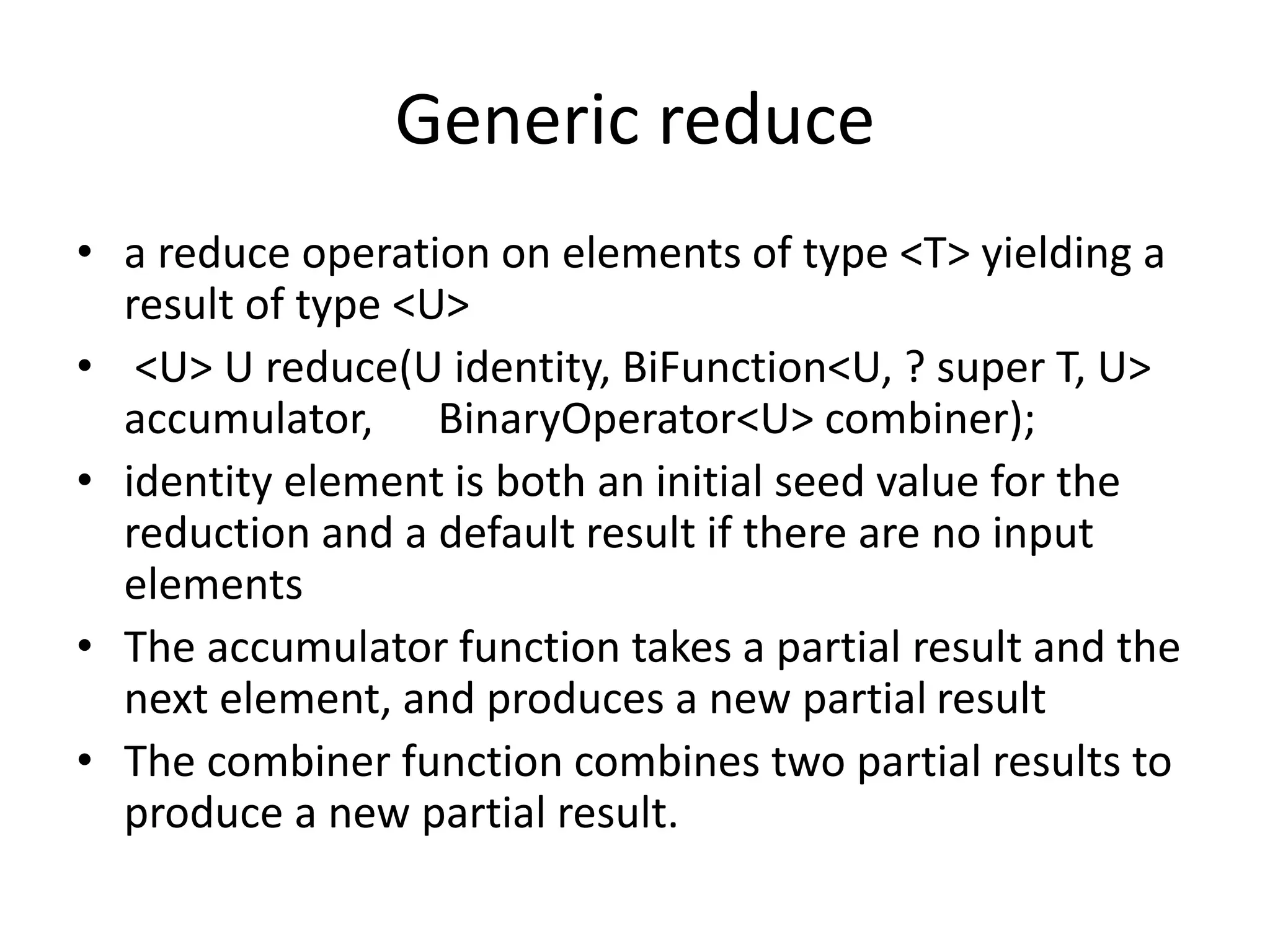
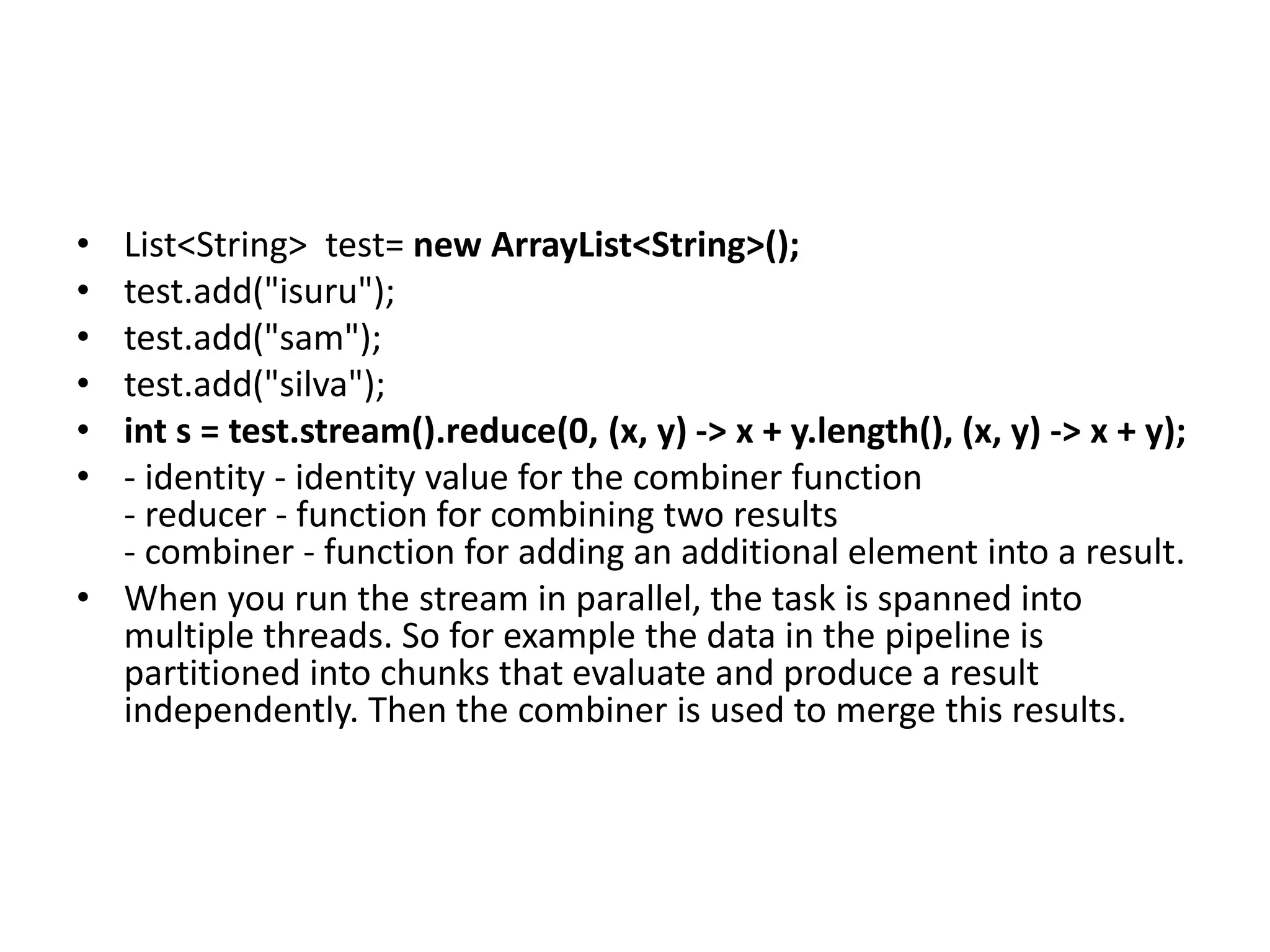
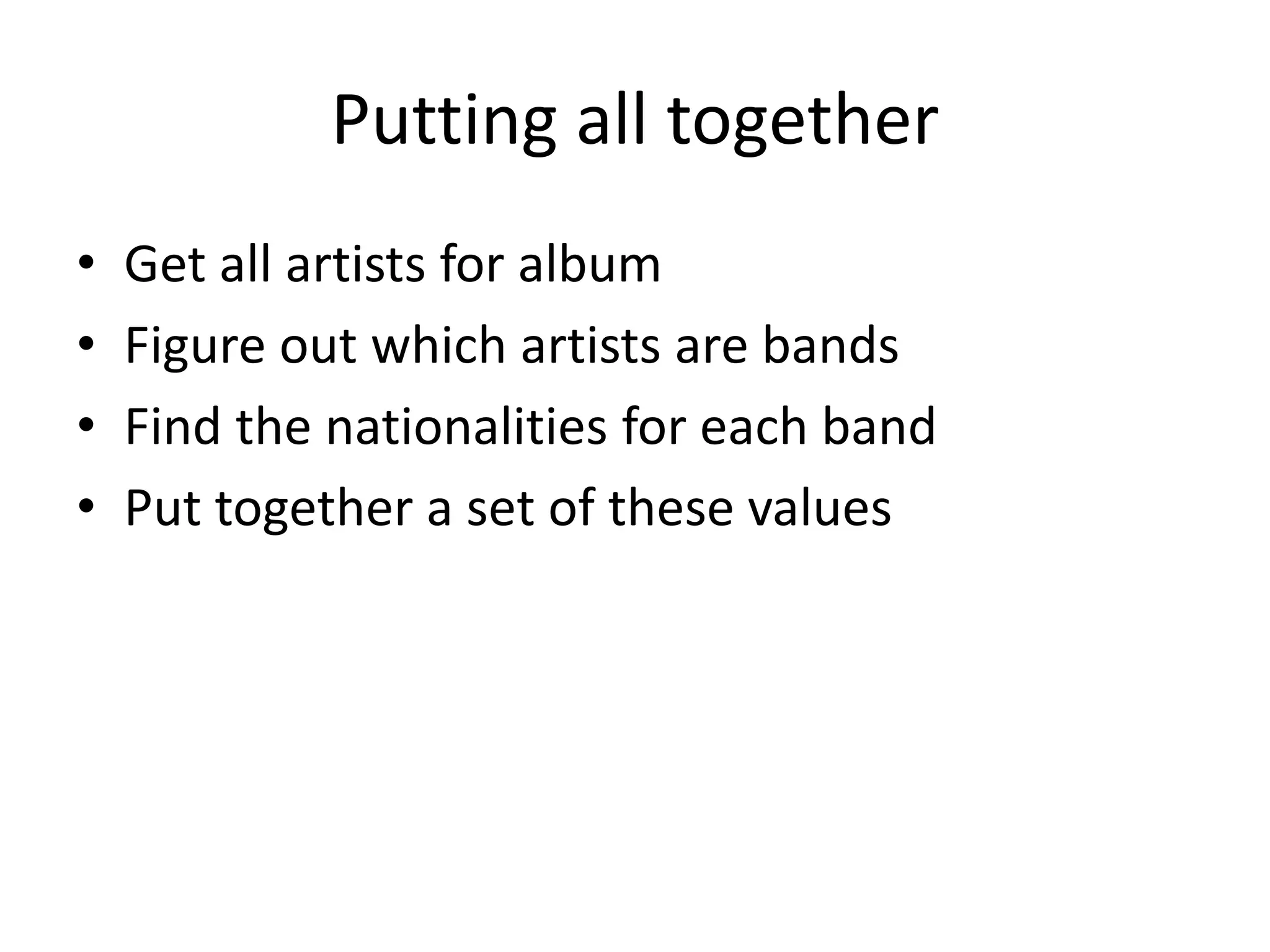
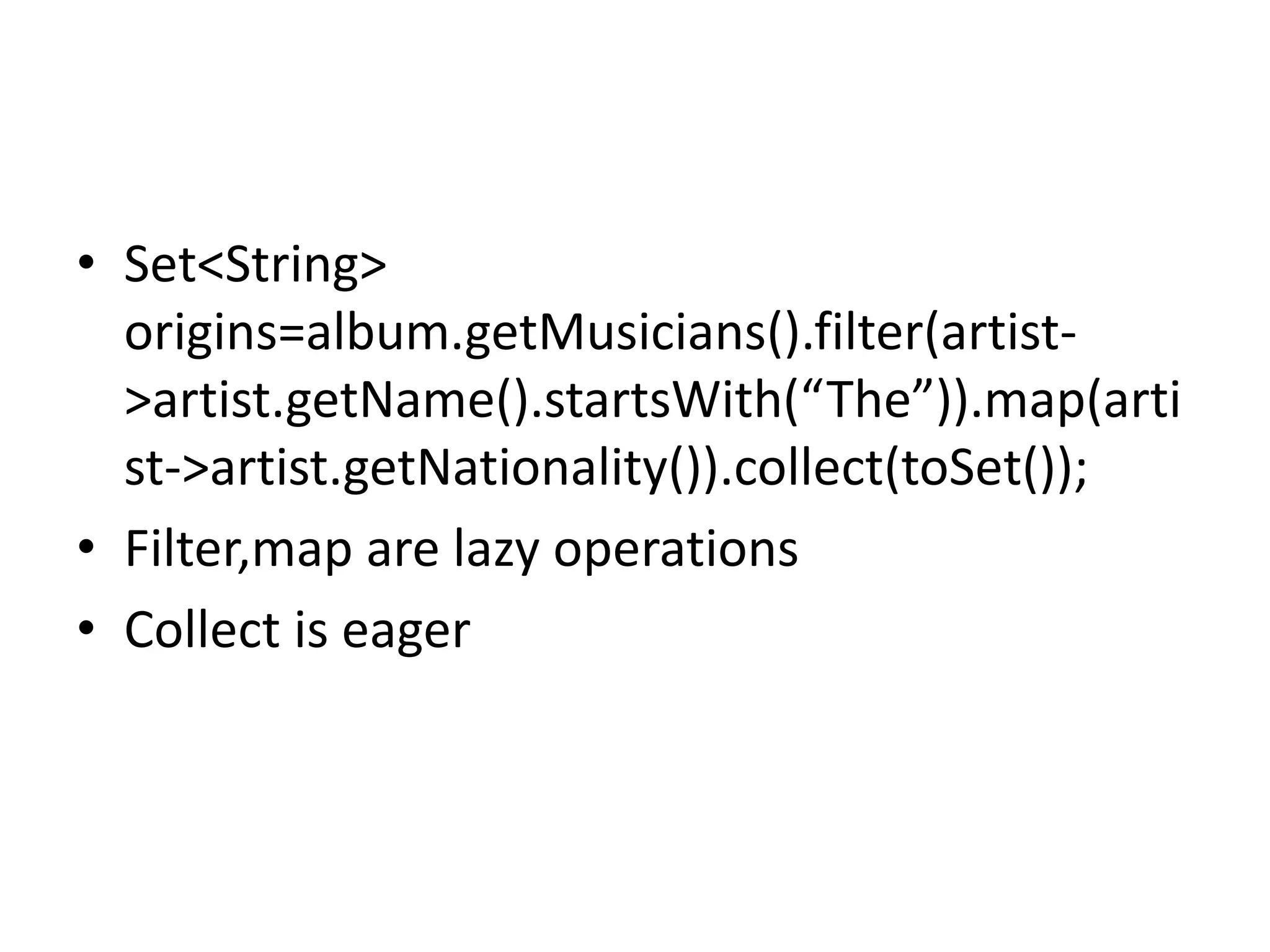
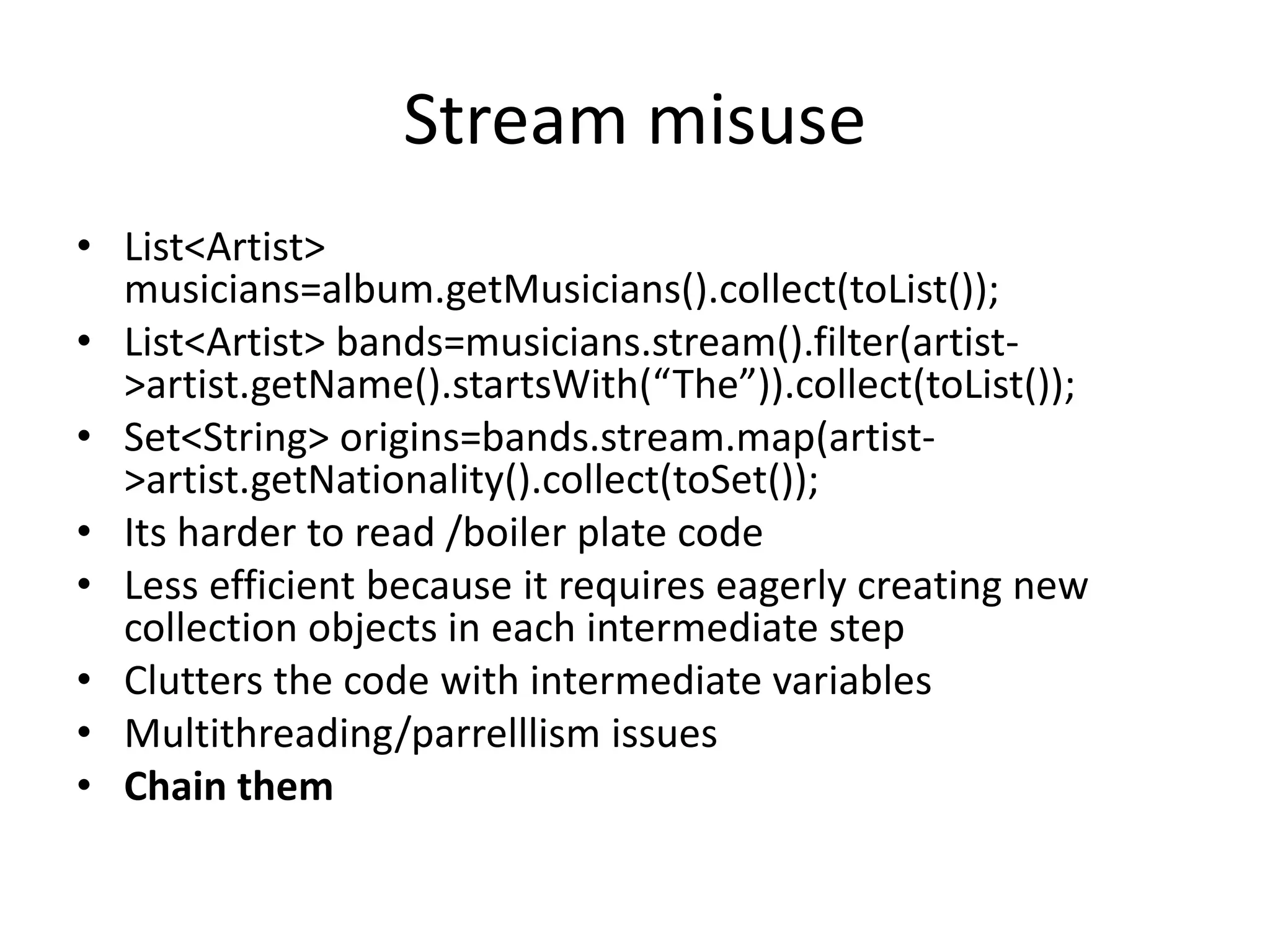
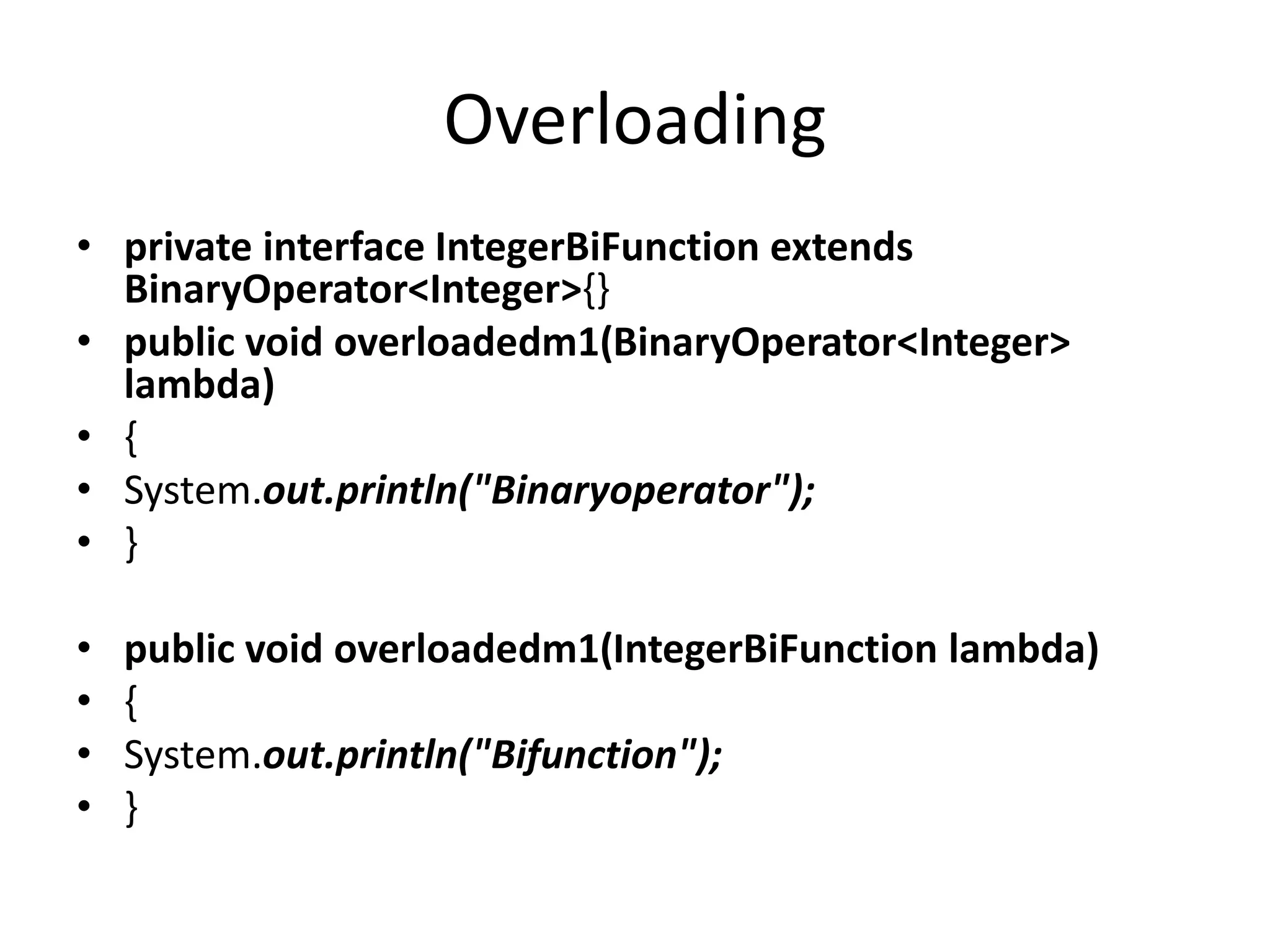
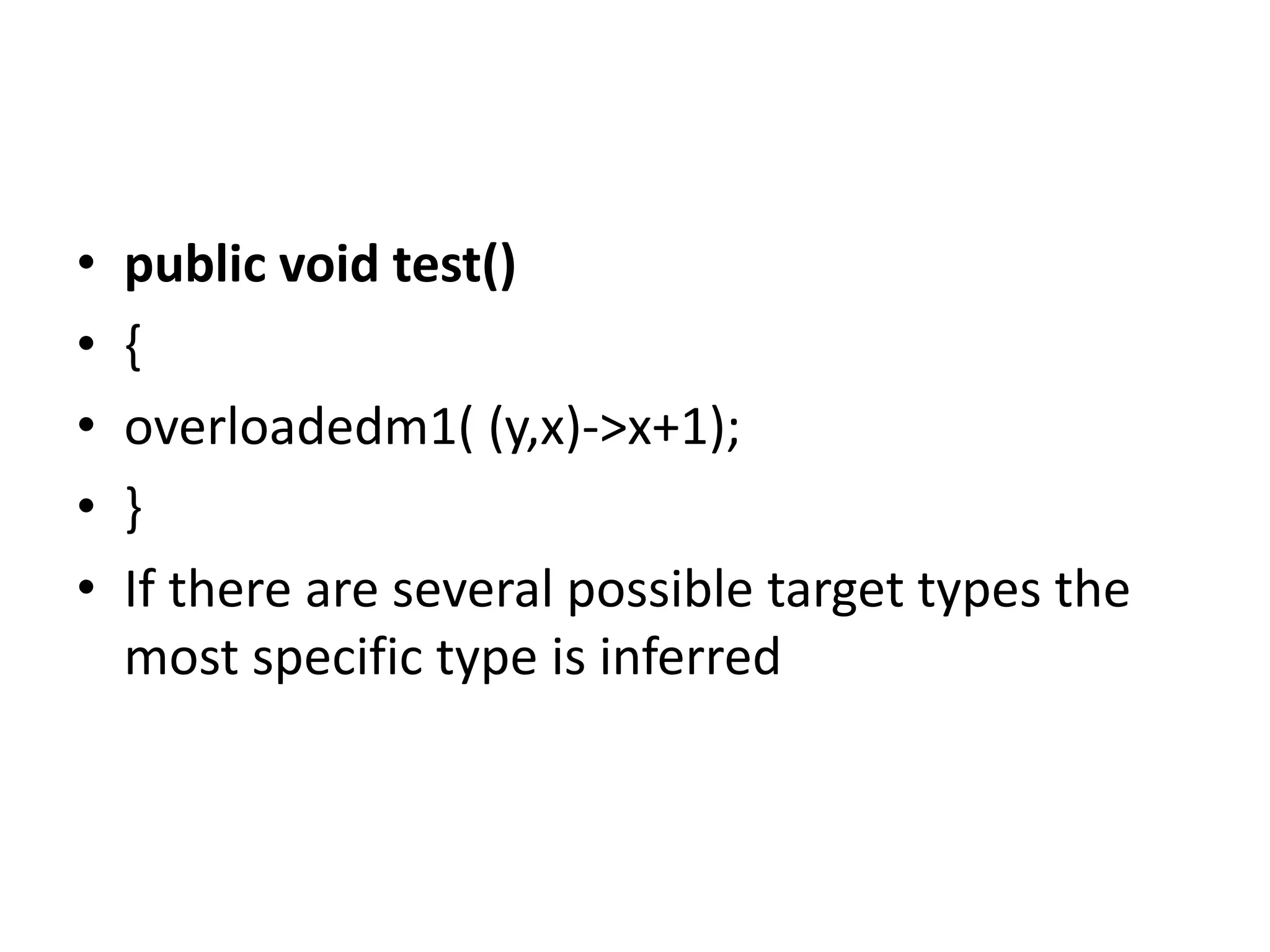
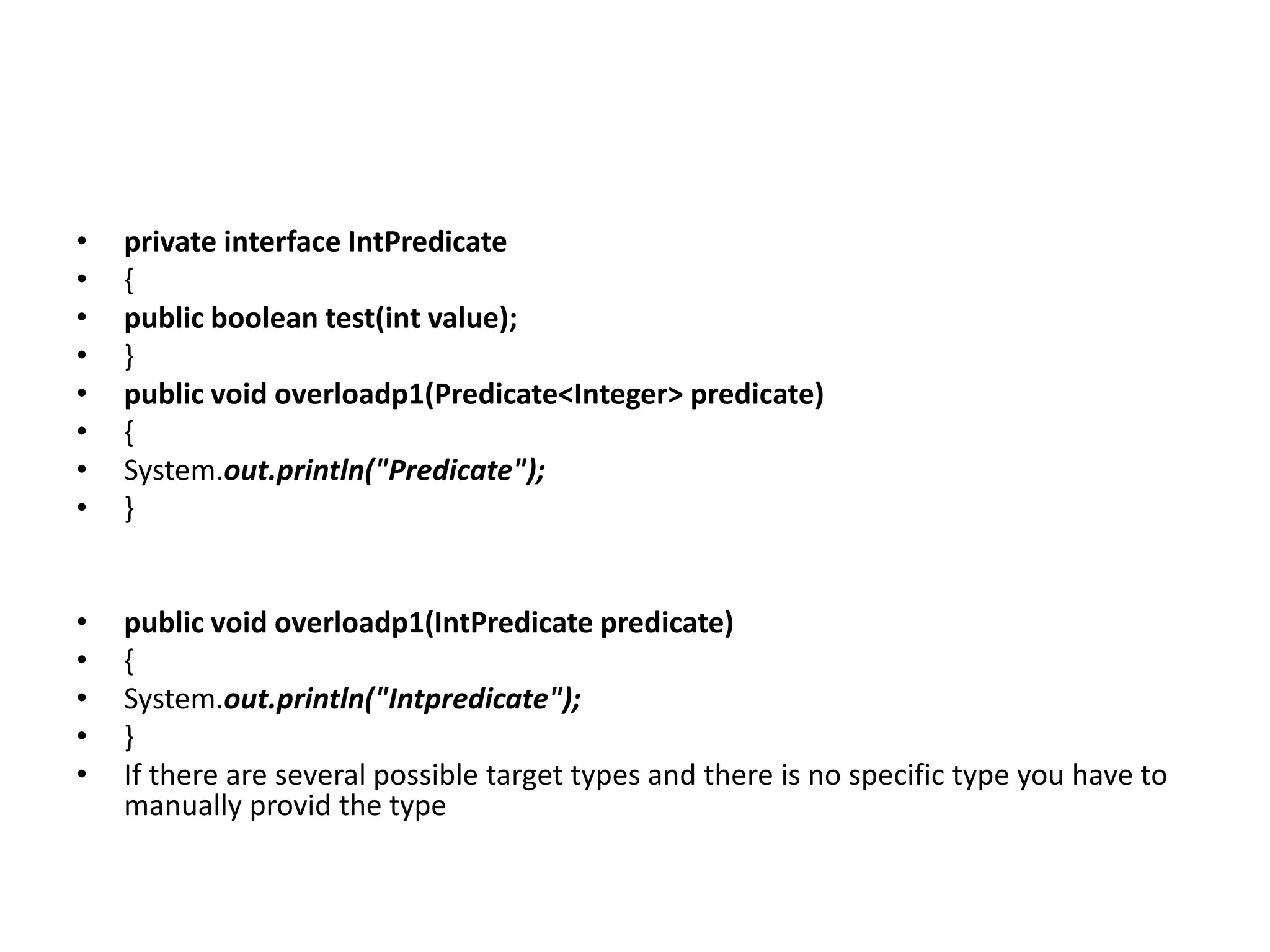
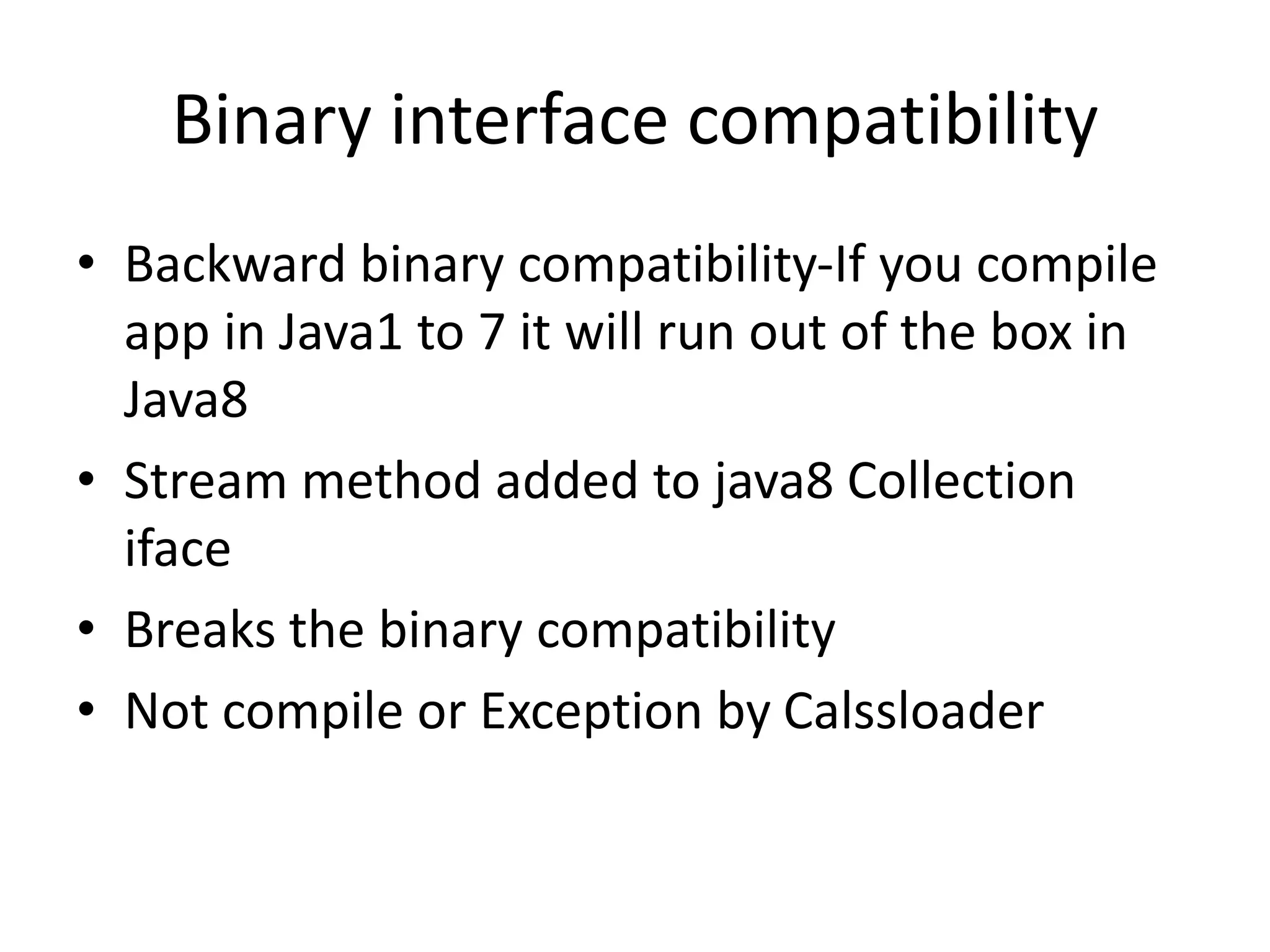
![Advanced Collections and Collectors
• Method references
• Artist:getName
• Artist:new
• String[] new](https://image.slidesharecdn.com/java8lambda-pruned-160519152614/75/Java8lambda-39-2048.jpg)
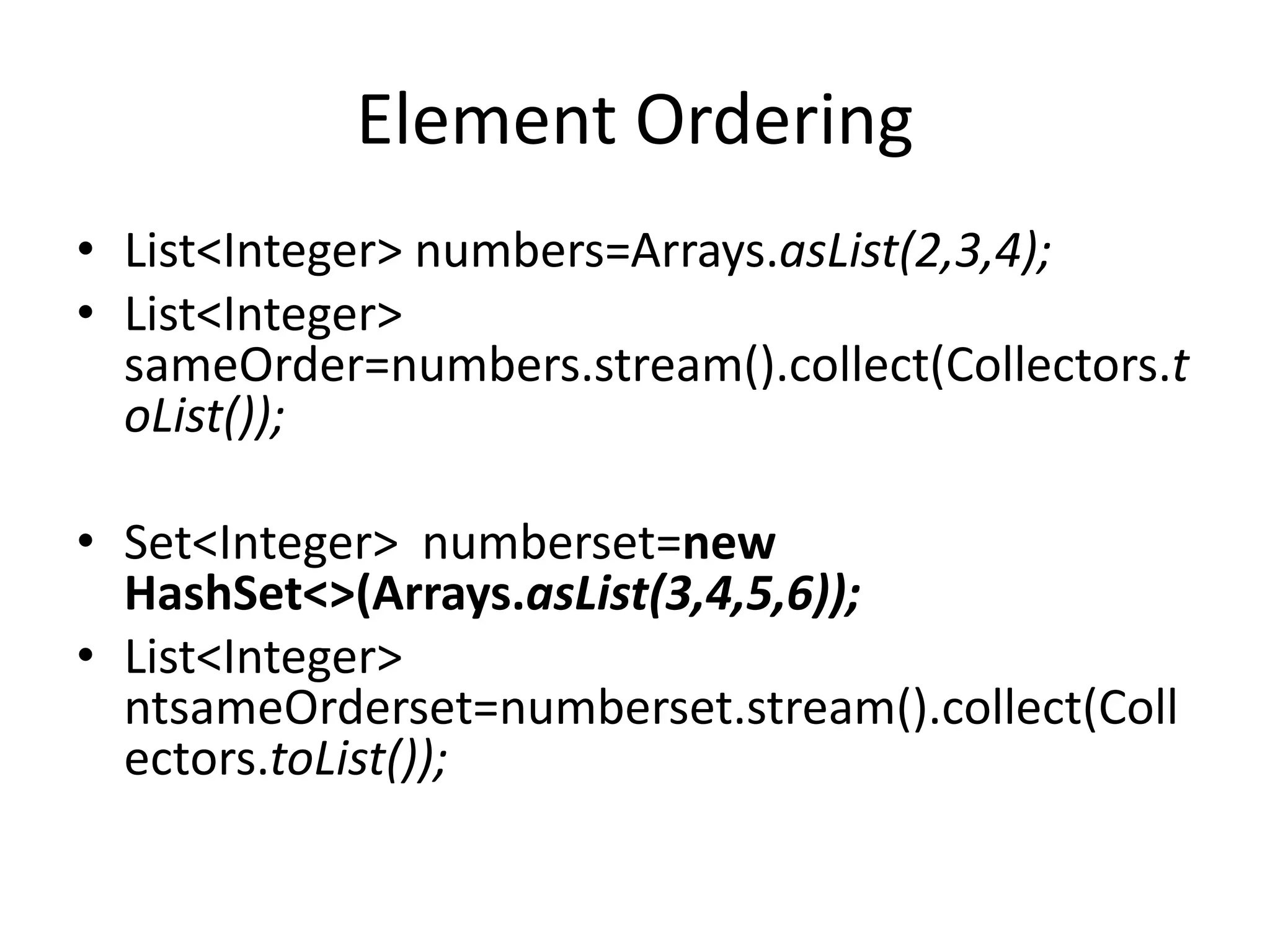
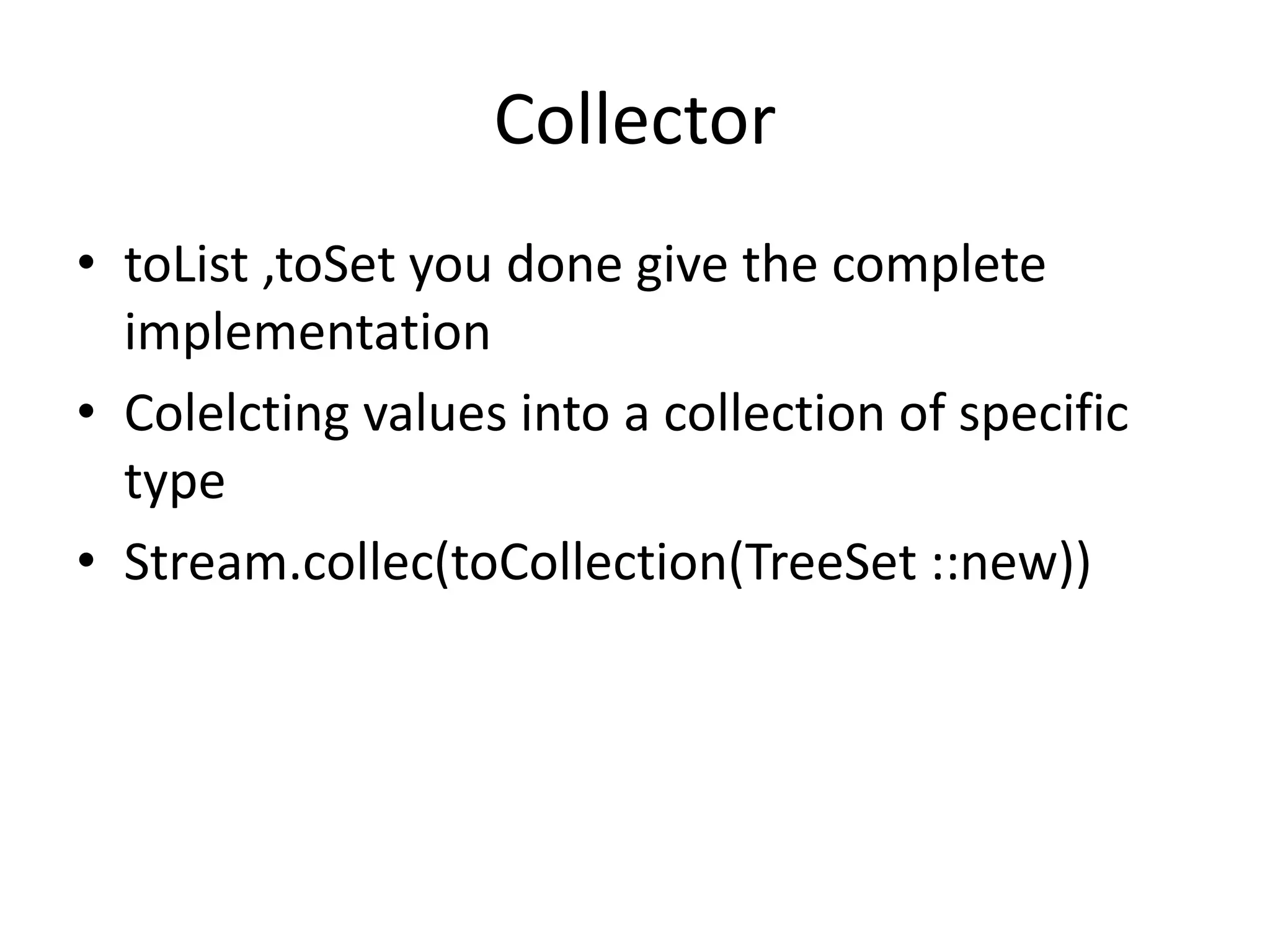
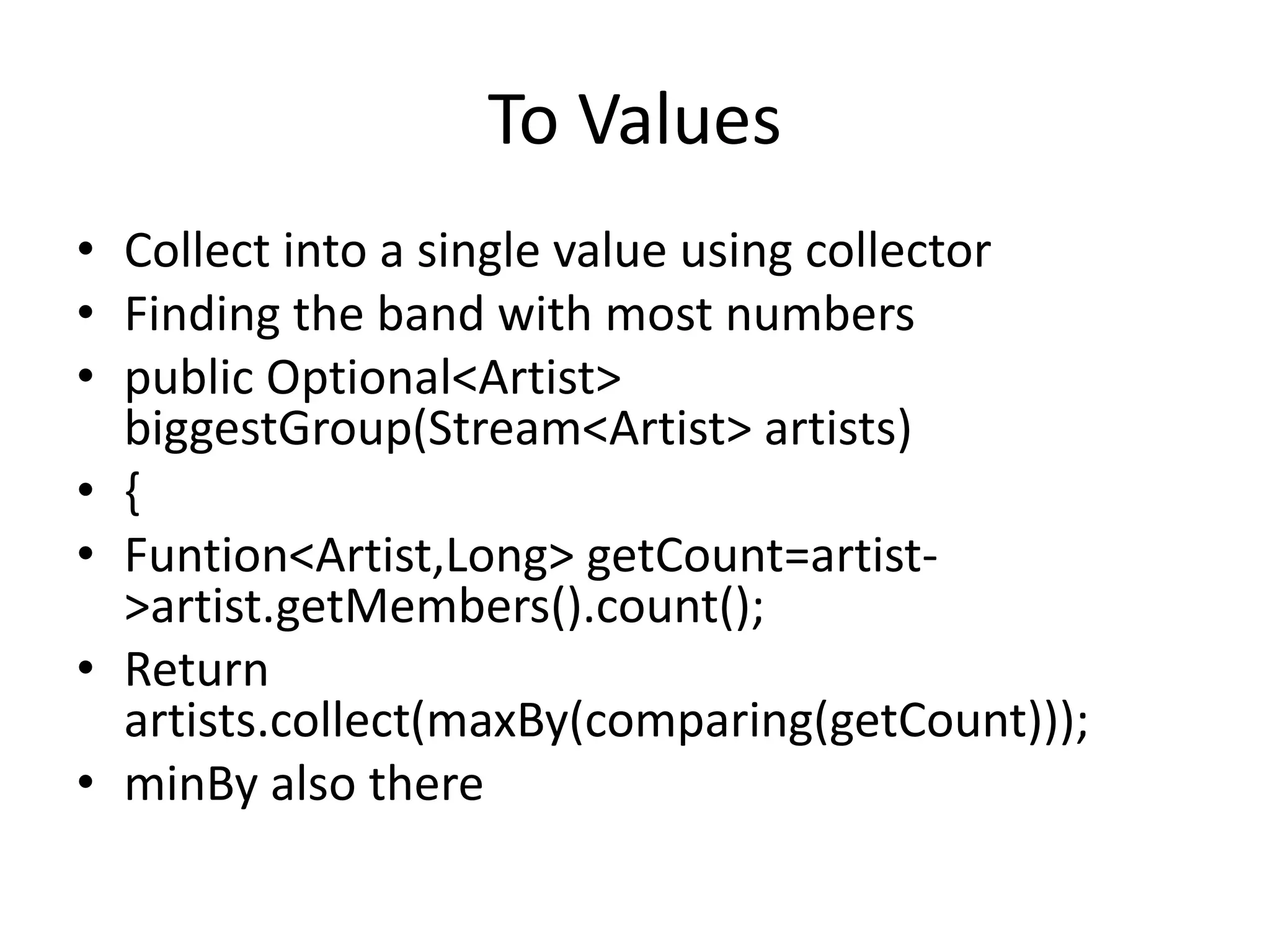
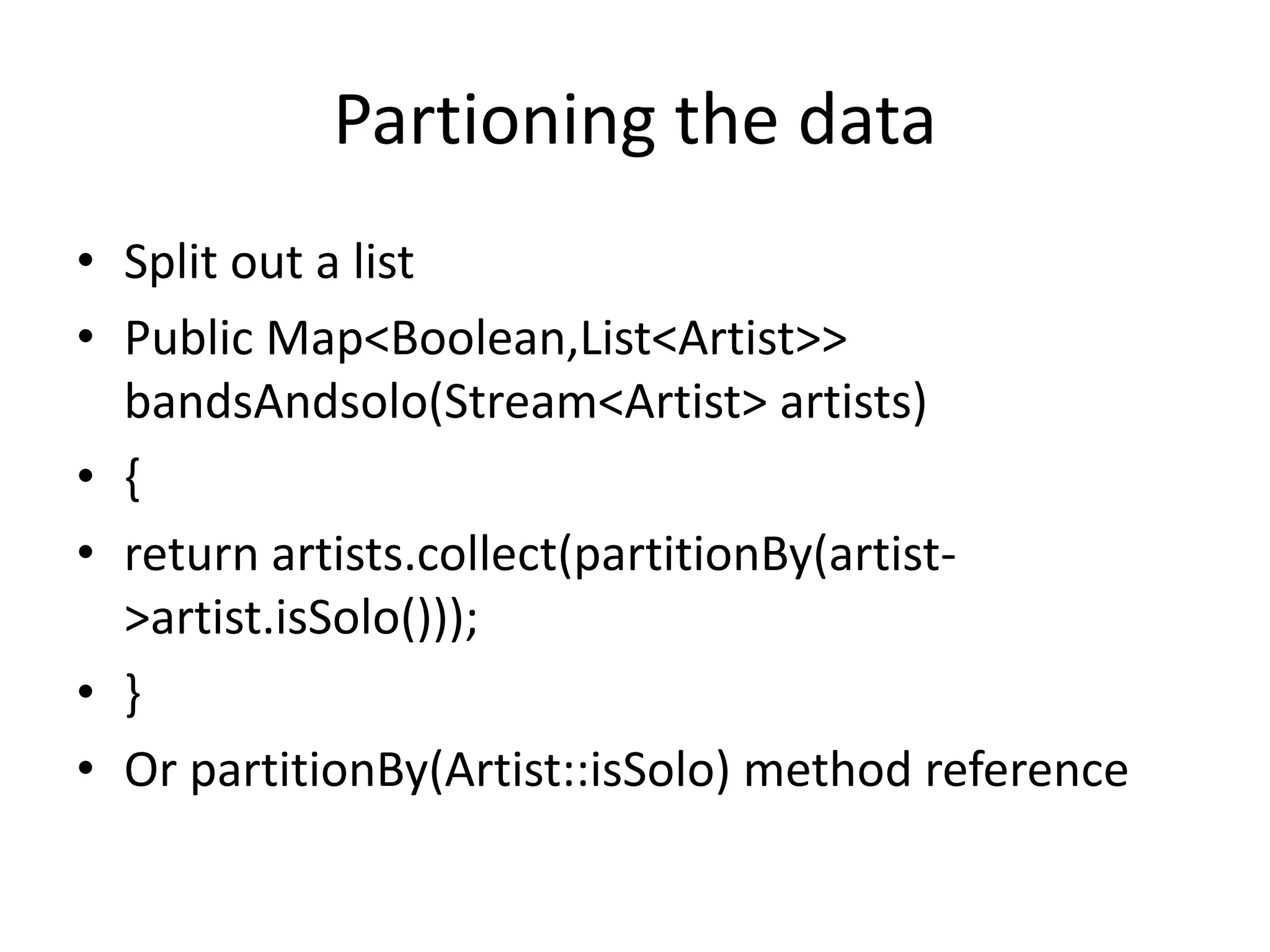
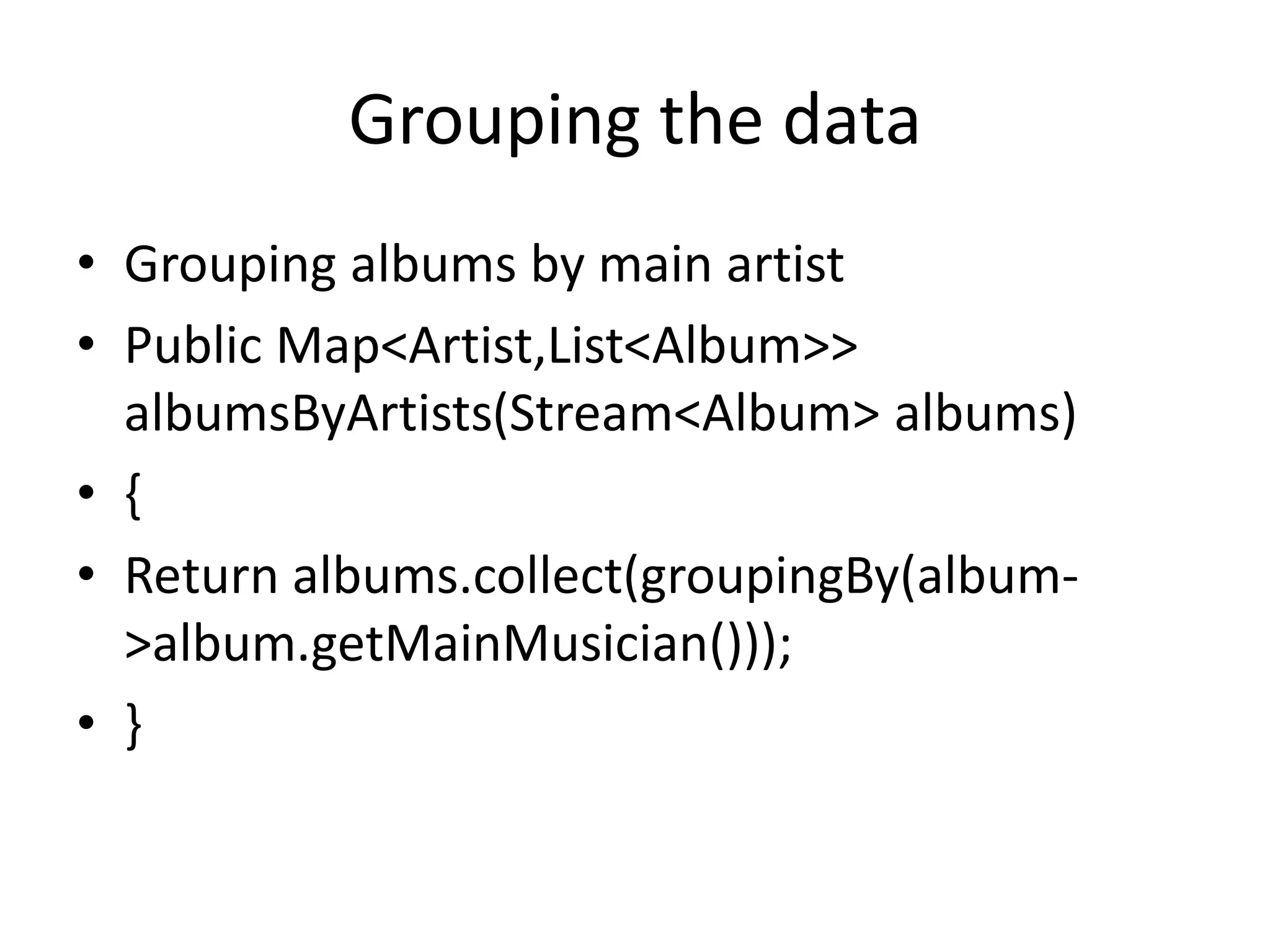
![String
• Traditional String handling
• StringBuilder builder=new StringBuilder(“[“);
• For(Artist artist:artists)
• {
• If(builder.length()>1)
• Builder.apppend(“, “);
• }
• String name=artist.getName();
• Builder.append(name);
• }
• Builder.append(“]”);
• String result=builder.toString();
• String result=artists.stream().map(Artist::getName).collect(Collectors.joiniing(“, “,
“[“,”]”));](https://image.slidesharecdn.com/java8lambda-pruned-160519152614/75/Java8lambda-45-2048.jpg)
